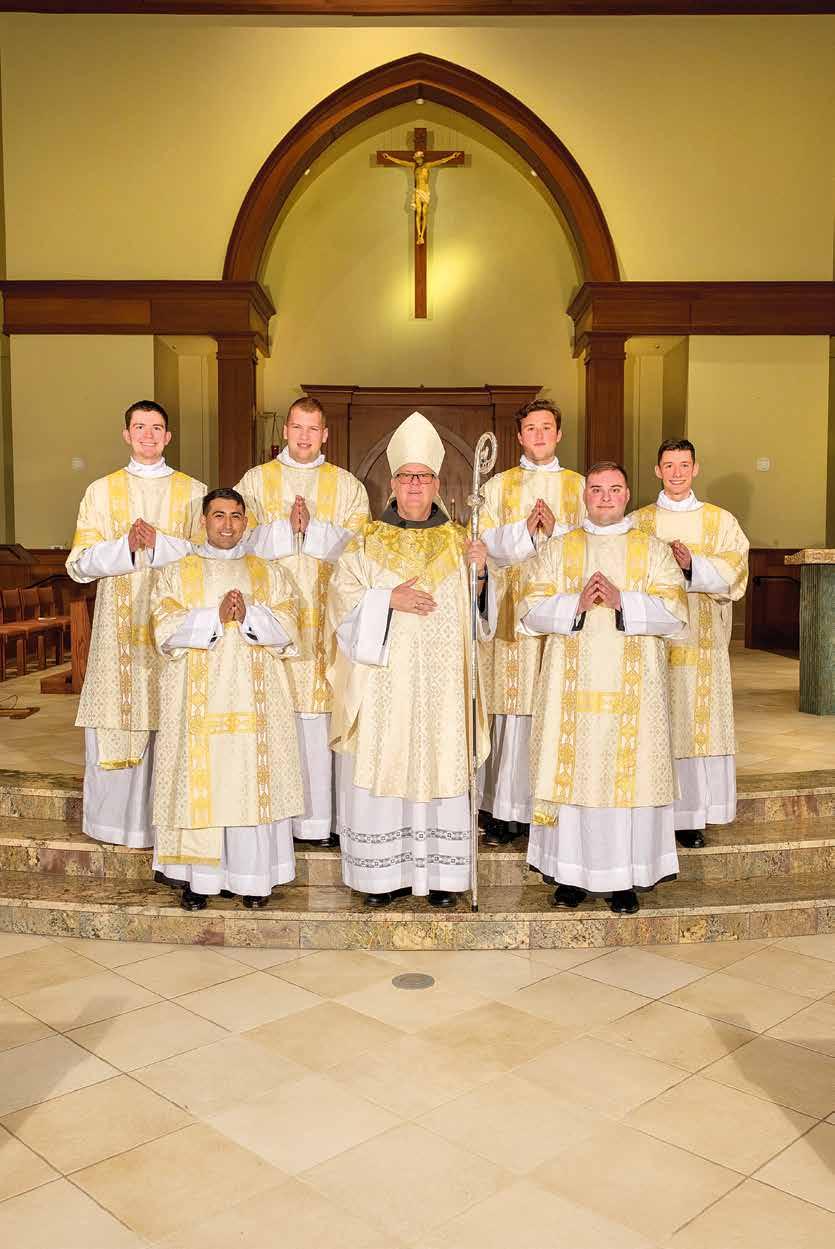
‘Keep your eyes on Him’
‘Mantengan la mirada en Él’






‘Keep your eyes on Him’
‘Mantengan la mirada en Él’




CHRISTINA LEE KNAUSS clknauss@rcdoc.org
Thismonth’s ordinations mark two milestones for the Diocese of Charlotte. For the first time, all of those ordained priests and deacons are a product of St. Joseph College Seminary, the diocese’s own homegrown incubator for priestly vocations. And two priests instrumental with the seminary’s founding mark their own jubilee anniversaries of ordination.
The ordinations of seven deacons on June 7 and six priests on June 14 reflect the growing impact of the college seminary. Since its founding in 2016, St. Joseph College Seminary in Mount Holly has become a catalyst for the diocese’s thriving vocation efforts – forming young men close to home, grounded in the parishes they will one day serve.
In its nine years, the seminary has welcomed 75 men, and so far 14 have completed formation and been ordained priests.
The new priests and deacons –who began their formation at St. Joseph between 2017 and 2021 – say the college seminary made “a big difference” as it is close to home and involves clergy they know.
“It made a lot easier to say OK to it because I’m staying locally,” said newly ordained Father Christopher Angermeyer, whose home parish is St. Thomas Aquinas in Charlotte. “I knew all the priests that were involved, so it made a bit of the decision easier. I knew these priests and I trusted them.”
Father Matthew Kauth, who has served as rector since its founding, notes, “The seminary provides real continuity because the men grow up in our parishes, are fostered by our families, and their formation and growth in virtue is rooted in the diocese. It helps to root them in this diocese where they will eventually serve.
“The seminary, in essence, becomes the heart of the diocese.”
Founded by Bishop Peter Jugis in response to rising interest in the priesthood among local teens and college-age men, St. Joseph College Seminary stands out nationally. It’s the only minor seminary between Washington, D.C., and Miami, and the only one dedicated to serving a specific diocese in the Southeast.
Bishop Jugis, a Charlotte native,
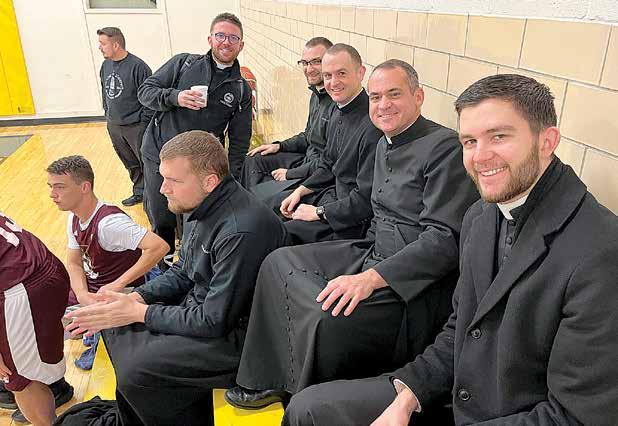
‘The seminary provides real continuity because they grow up in our parishes, are fostered by our families, their formation and growth in virtue is rooted in the diocese.’ – Father Matthew Kauth
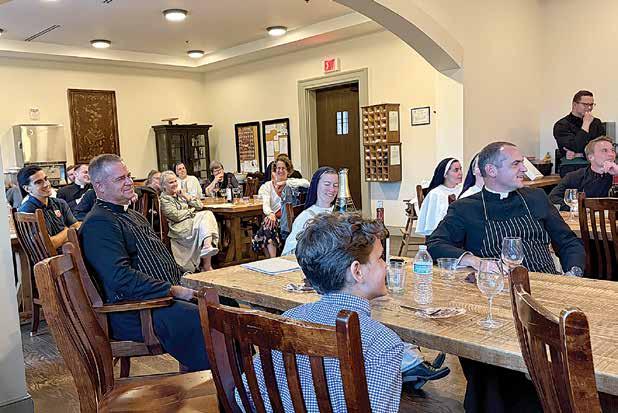
envisioned the seminary as a place where much-needed vocations for the growing diocese could begin early – without sending young men far from home.
In a 2024 interview, Bishop Jugis recounted there were few options in the diocese when he was considering the priesthood. In his own discernment as a teenager growing up in Charlotte, he recalled being told to go take some philosophy classes in college and come back after graduation.
“After I became bishop, we began to discover, in responding to the needs of the times, that there were more and more young people in their late teens who were approaching the diocese and their pastors about feeling called to the priesthood or consecrated life,” he said. “I didn’t feel it right to say, ‘Well, come back in two or three years,’ because they were hungry for formation, much like I was.”
The seminary began modestly –eight men living in a former convent behind St. Ann Church in Charlotte. A permanent building opened in 2020 on an 86-acre site, with Gothicstyle architecture reminiscent of nearby Belmont Abbey College, where the seminarians earn their bachelor’s degrees and go on to major seminaries elsewhere to complete their formation.
The proximity of the seminary to home is not just practical, it’s vital, seminarians and clergy agree.
“Honestly, I’m not sure I would have entered seminary without having it,” said newly ordained Deacon Michael Lugo. “Being able to visit regularly, see the community and be a part of it in some way was a huge benefit to my discernment.”
The college seminarians follow a rigorous daily routine similar to what they would in major seminary or in a religious order: daily Mass and prayer time, spiritual direction, classes, chores, fellowship and more.
“There’s a better understanding of what being in (major) seminary is like,” explains Father Angermeyer. “I think it makes young men feel more comfortable actually trying to enter.”
The sense of familiarity and connection is by design. Seminarians remain active throughout the diocese, attending diocesan liturgies, serving in parishes during their summer breaks, and helping with vocations camps like Quo Vadis Days. These encounters enable young men considering the priesthood to meet peers who have taken the first steps – and see their own path more clearly.
Newly ordained Father Nicholas Kramer said when he was younger, he would drive down to the seminary in Mount

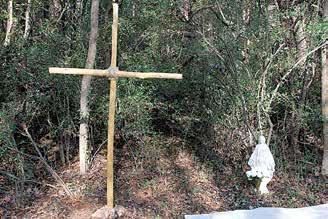
Holly and hang out for a day. That was hugely impactful, he says.
“When the time came when I did enter seminary, it wasn’t like I was isolated from my friends and family. I knew a lot of people there already just because of the things in the local diocese. I was connected to the diocese, which I think as a diocesan priest is a really important thing for us early on in formation, to get connected to our diocese. Because for us, our diocese is the place in which, unless the bishop decides to send me somewhere else, I will be ministering for the rest of my life.”
This presence of seminarians in and around the diocese, and the opportunity to forge strong bonds of brotherhood, were also key for John Cuppett, who was ordained a transitional deacon earlier this month.
“Watching them gave me courage to follow our Lord as well,” Deacon Cuppett says.
He originally went to Belmont Abbey College on a baseball scholarship before discerning a vocation. He describes the community aspect of the seminary as “the perfect seedbed” with all the elements necessary to help develop his relationship with Christ.
“Fostering a life of prayer provided the structure to order my life around the source and summit of my faith in the Eucharist and the sacraments, which is the essence of the priesthood,” he says.
‘WHATEVER I HAVE, THEY HAVE’
This year’s celebration is also a special moment for two key figures in the college seminary’s founding. Father Kauth and Father Christopher Gober, the diocese’s longtime vocations director, are both celebrating 25 years of priesthood. The two grew up together and were both ordained on June 3, 2000, for the Charlotte diocese.
Father Gober, who is stepping down in July after 21 years as vocations director to focus on the needs of his growing Winston-Salem parish, helped support the establishment of the college seminary and guided the ordination of 57 men to the priesthood during his tenure.
“It’s been a tremendous blessing to serve the people of God in the various parishes I’ve been assigned to, and to do my small part to try to cultivate vocations to the priesthood for the diocese over these many years,” he says.
For Father Kauth, the experience of mentoring seminarians is deeply personal.
“Whatever I’ve gained as a priest I pour into them,” he says. “Whatever I have, they have. Through this work you expand your influence, and it multiplies as these men go on to the priesthood. It’s
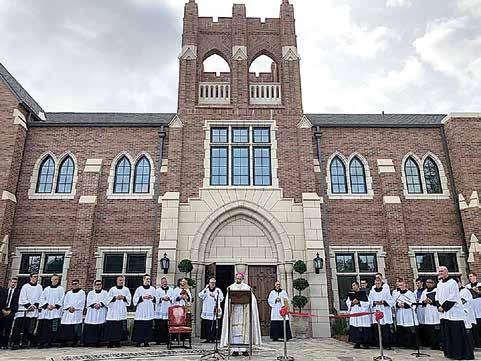
a form of fatherhood, and I could not be more delighted than to be able to have this experience of spiritual fatherhood.”
As the six newly ordained priests begin their ministries, they carry with them the impact of formation rooted in diocesan soil – formed by priests they knew, shaped in the parishes where they first heard the call.
“Although it’s hard to measure success when determining the work of the Holy Spirit, I would credit most, if not all the success, to the formation at the seminary,” says Deacon Cuppett. “It was there that
the faith and the Scriptures were opened to me and the Church of Jesus Christ was presented in the most extraordinary way.”
Newly ordained Father Bryan Ilagor adds, “While many dioceses in the United States may struggle with ordaining a few and sometimes no vocations for ordinations, the Diocese of Charlotte has many good men willing to sacrifice to serve the local Church. I feel more prepared during these past seven years to honor my commitment to the Diocese of Charlotte with newly ordained Bishop Michael Martin to say yes, Lord, to the best of my abilities, ‘I come to do your will.’”
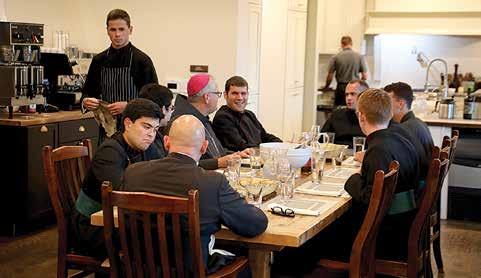
If you or someone you know is contemplating a vocation to the priesthood, diaconate or religious life, check out the following general resources online.
Talk with your pastor, reach out to the diocese’s vocations promoter, read up on consecrated life and the various religious communities that exist, and contact communities that interest you. Many offer “come and see” days or retreats that are good opportunities to learn more and meet others who have already accepted God’s call to religious life. For young men and women, there are also summer discernment retreats offered by the Diocese of Charlotte and hosted at Belmont Abbey College: Quo Vadis Days for young men, and Duc In Altum and Talitha Koum for young women. Information about the 2026 retreats will be posted next spring online at www.charlottediocese.org/ vocations
Overall, remember: Don’t be afraid to reach out and ask questions!
n Father Brian Becker, vocations promoter: bjbecker@rcdoc.org
n www.foryourvocation.org: Set up by the U.S. Conference of Catholic Bishops, dedicated to the promotion of vocations to the priesthood and consecrated life for both men and women. They are also on Facebook and YouTube. There are resources for parents and teachers, questions to ask yourself if you feel God is calling you, videos of vocation stories from priests and religious all over the U.S., and more.
n www.religiouslife.com: The Institute for Religious Life’s website, with plenty of resources for both men and women interested in a vocation or those who wish to support religious life.
n Not sure what religious communities are out there that might be a good fit for you? Check out www.religiousministries.com. Search this database to find a men’s or women’s religious community, whether you wish to become a priest, nun, brother or lay missioner, or just want to find out more about living a religious life.
n www.cloisteredlife.com: Aims to bring to attention the gift of cloistered and monastic life in the Church, sponsored by the Institute for Religious Life.
n www.cmsm.org: The Conference of Major Superiors of Men serves the leadership of the Catholic orders and congregations of the more than 17,000 vowed religious priests and brothers in the U.S. n www.religiousbrotherhood.com: Sponsored by the Institute for Religious Life specifically to increase awareness of the specific charism of religious brotherhood in the U.S.
n www.cmswr.org: The Council of Major Superiors of Women Religious (CMSWR) is a canonically approved organization, founded in 1992, to promote religious life in the U.S. n www.lcwr.org: The Leadership Conference of Women Religious (LCWR) is an association of the leaders of congregations of Catholic women religious in the U.S.
If you would like to know more about deacons and their ministry or feel you may have a calling, please contact Deacon David Faunce, director of formation, at dmfaunce@rcdoc.org or Deacon Joseph Becker, assistant director of formation, at jcbecker@ rcdoc.org. Details can be found online at www. charlottediocese.org/vocations/diaconate
— Catholic News Herald
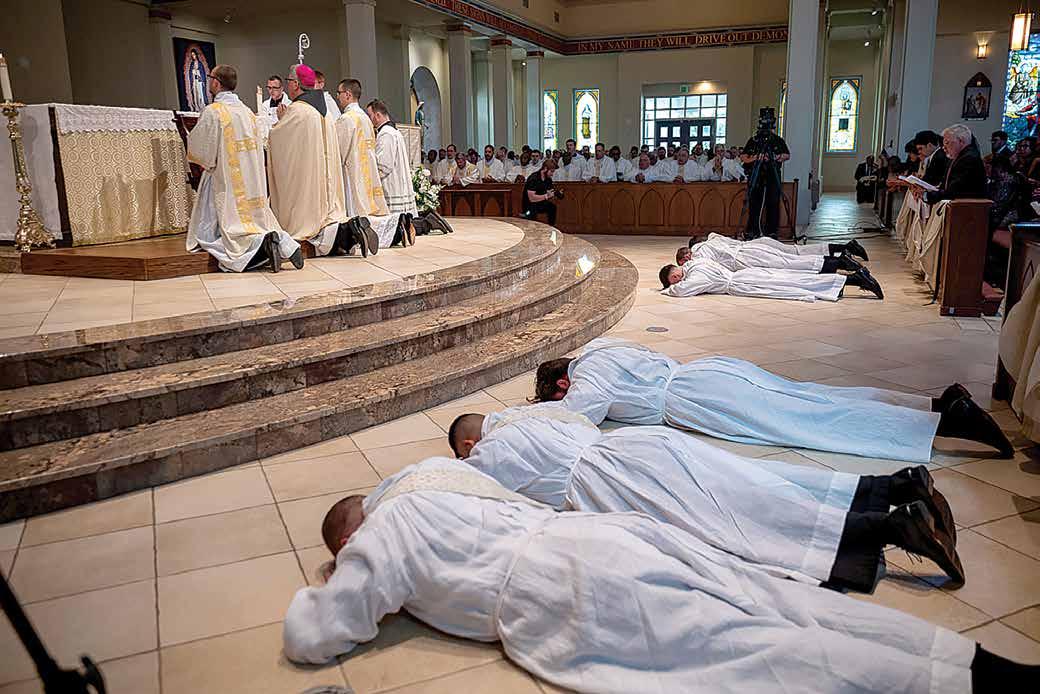
CHRISTINA LEE KNAUSS clknauss@rcdoc.org
— The Diocese of Charlotte has gained six new priests, ordained by Bishop Michael Martin on June 14 at St. Mark Church.
The new priests are Father Christopher Angermeyer, Father Anthony del Cid Lucero, Father Nicholas Kramer, Father Kolbe Murrey, Father Andrew Templeton and Father Joseph Yellico.
About 1,300 people packed the church and overflowed into the parish hall to see the six men begin their priestly lives of service to Christ, His Church and the faithful. The ordination also drew more than 200 people who watched the livestream of the event, including Father Lucero’s family who watched from Guatemala.
At the start of the ordination rite, the six men stood in front of Bishop Martin and declared their willingness to be ordained and take on the duties of the priesthood.
WITH CLEAR VISION, SEEK OUT THE LOST
Bishop Martin offered a homily that focused on the importance of having a clear vision in priestly ministry. He
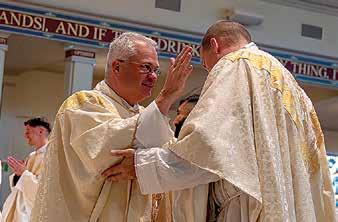
described the stresses of taking a recent eye exam, including the challenge of repeatedly choosing which of two nearly identical lines of type was clearer. “What’s more clear, one or
two?” he said the optometrist repeatedly asked him.
Seeking a clear vision of what God wants will be their new life’s mission, he told the men.
“The rest of your life will be a journey of clarity. Will you see clearly through the haze and the fog that sometimes our world presents?” he asked them. “Your vision in this moment is not just important for you, but it’s important for the entire Church now. Because where you will lead because of what you see is where others will follow.”
Bishop Martin said important lessons about clarity in ministry could be found in the day’s readings. The first reading from Ezekiel (34:11-16) focused on the image of a shepherd seeking out lost sheep in his flock, including the strays, the injured and the weak. He urged the men to recognize the brokenness of the world and the importance of reaching out to all those they are called to serve.
“Ezekiel talks about going out and looking for, seeing, the lost sheep, the broken sheep, the injured sheep,” he said. “You have to see them, too, and be willing to go out and bring them back, walk with them back, let them know that they are seen, and they are known and they are loved,” he told them.
The second reading from Paul’s letter to the Hebrews (5:110) focused on the beauty of obedience through suffering, and the perfect example of Christ’s obedience shown through the crucifixion.
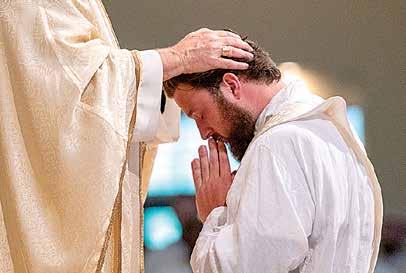
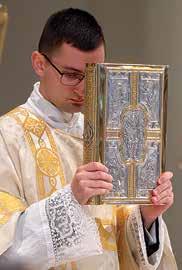
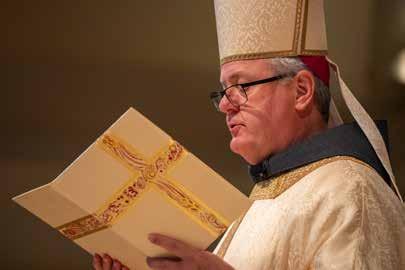
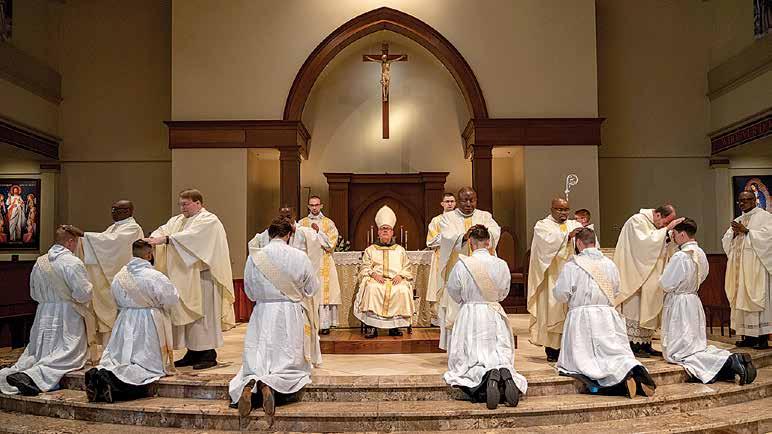
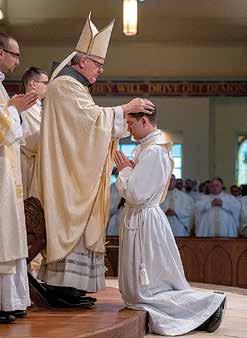
“Your obedience will be made manifest in your own crosses, the difficulties of life that you will have to endure,” he said. “He talks about this call to obedience through suffering as a call from God. It is. What you are embarking upon today is a call from God.”
He continued, “No one would choose what you said yes to on your own. Realize that you’re being called by God to sacrifice. Let that reconfirm every single day in the midst of the difficulties, in the midst of the challenge. Realize that this (the priesthood) is what I’m called to do, and I embrace it.”
Bishop Martin urged the men to keep their vision focused on Christ much as a farmer must focus on a spot on the horizon to plow straight furrows in a field.
“My brothers, the spot on the horizon is clear. One or two? It’s only one. There’s the spot on the horizon. It’s Jesus Christ, the high priest, crucified, for you and me,” he said.
“Keep your eyes on Him, and let Him pull you, and all of the sheep you will serve, following in behind to a new heaven and a new earth where the harvest is rich and
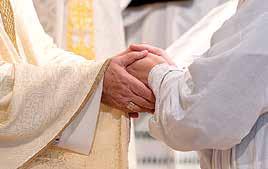
bountiful and beautiful.”
When the homily concluded, the men lay prostrate during the Litany of Supplication. The bishop then laid his hands on their hands and prayed over them. A long line of priests who attended the ordination Mass then laid hands on the men as a symbol of priestly unity.
The six were then vested with their priestly stole and chasuble by priests who had played meaningful roles in their lives. Their hands were anointed with sacred chrism and
Following their ordination, Bishop Michael Martin announced where each of the new priests will serve, starting July 8:
n Father Christopher Angermeyer: St. Mark Parish in Huntersville
n Father Anthony del Cid Lucero: St. Michael the Archangel Parish in Gastonia
n Father Nicholas Kramer: St. Matthew Parish in Charlotte
n Father Kolbe Murrey: St. Thomas Aquinas Parish in Charlotte
n Father Andrew Templeton: St. Luke Parish in Mint Hill
n Father Joseph Yellico: Campus Minister at UNC-Charlotte
they were presented with the gifts of bread and wine as a symbol of their new ability to celebrate Mass. They then received the fraternal kiss of peace from Bishop Martin and the other priests in attendance.
The St. Mark’s choir offered a beautiful assortment of chants and hymns to accompany the ceremony, and the choir from Our Lady of Consolation Parish in Charlotte sang Richard Smallwood’s “Total Praise” during the laying on of hands.
After the Mass, the new priests’ families gathered in the church to take pictures with Bishop Martin. As they waited in line for
their turn, some of the parents reflected on the day.
“It’s a great joy to be able to offer my son to the Church,” said Sarah Kramer, mother of Father Nicholas Kramer. “I hope that his ministry is soaked in beauty and truth.”
Carlton Murrey, the dad of Father Kolbe Murrey, said it was an honor to be able to see his son ordained.
“This felt like the end of one journey and the beginning of another,” he said. “My son is moving into a life of service and sacrifice to the Church.”
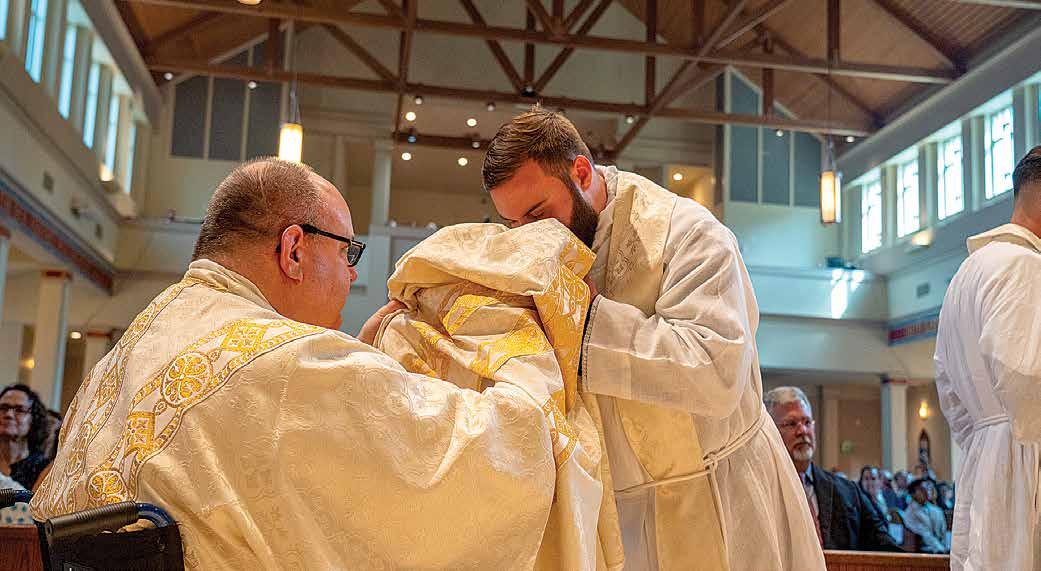
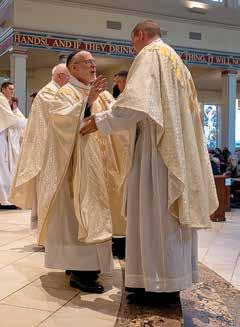
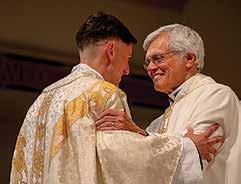
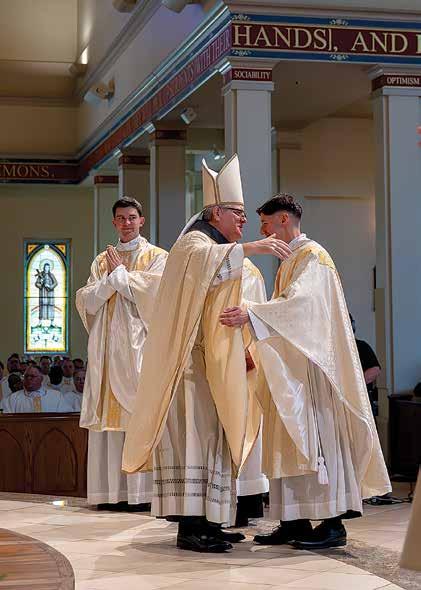
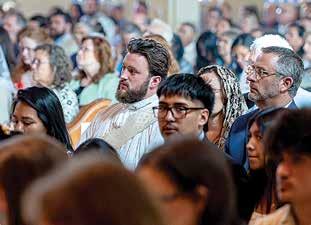
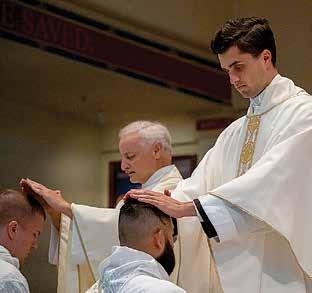
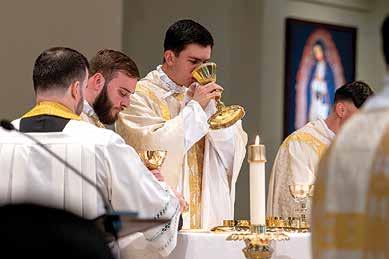
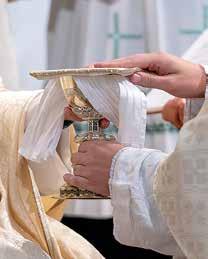
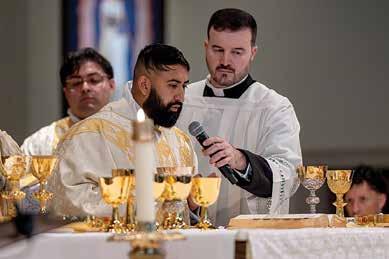

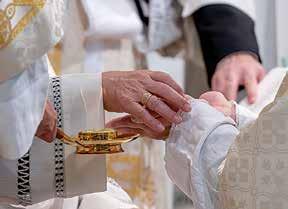
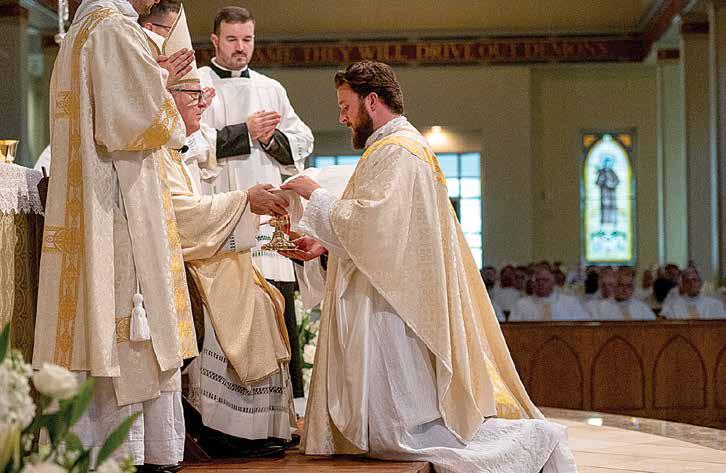
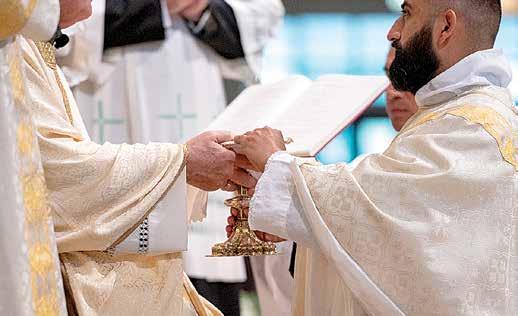
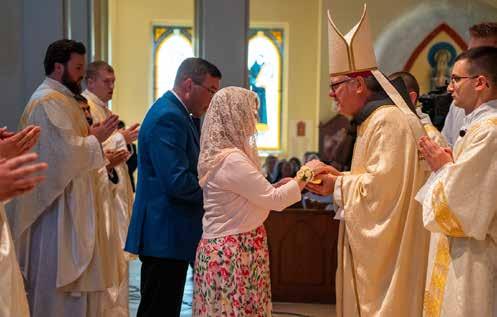
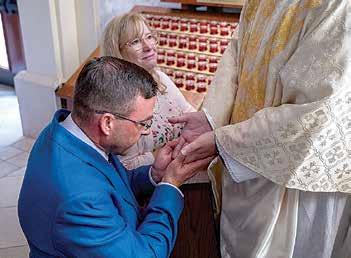
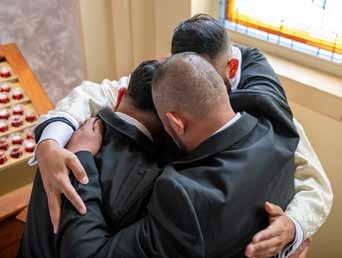

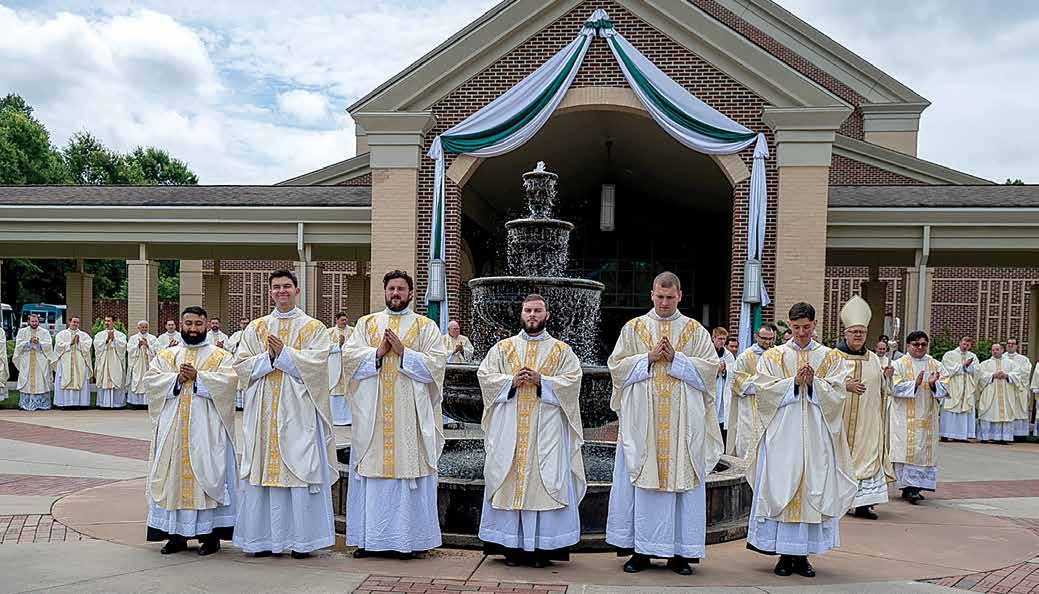
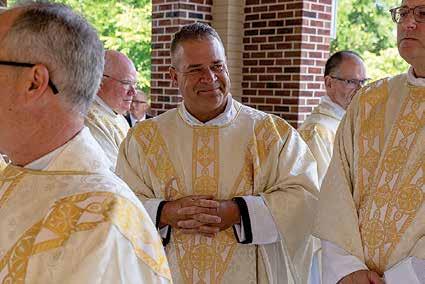
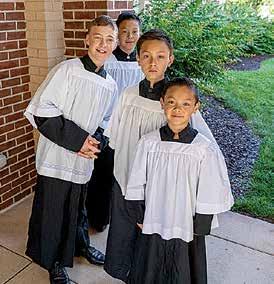
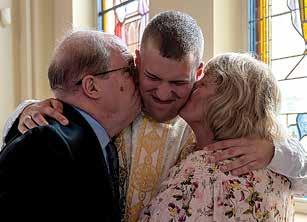
The parish of Immaculate Conception in Forest City, NC wishes to congratulate
on his ordination to the transitional diaconate at St. Mark's Catholic Church in Huntersville, NC by Bishop Michael Martin on June 7, 2025.
We are grateful for the generosity of his family and for the prayers of the parish for his continued support in his vocation to the priesthood.
Congratulations to Father Richard Hanson on the celebration of his 50th anniversary to the priesthood and to Father John Allen on his 35th anniversary.
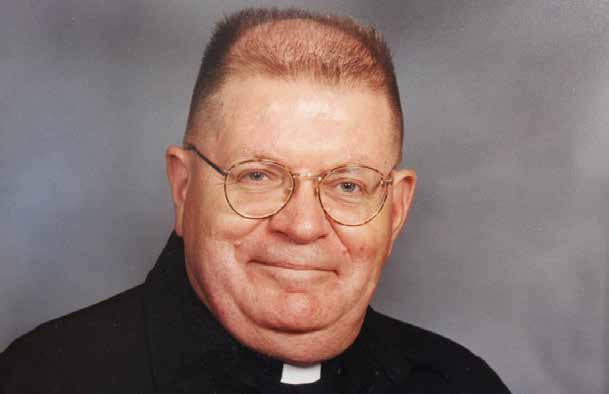
HANSON
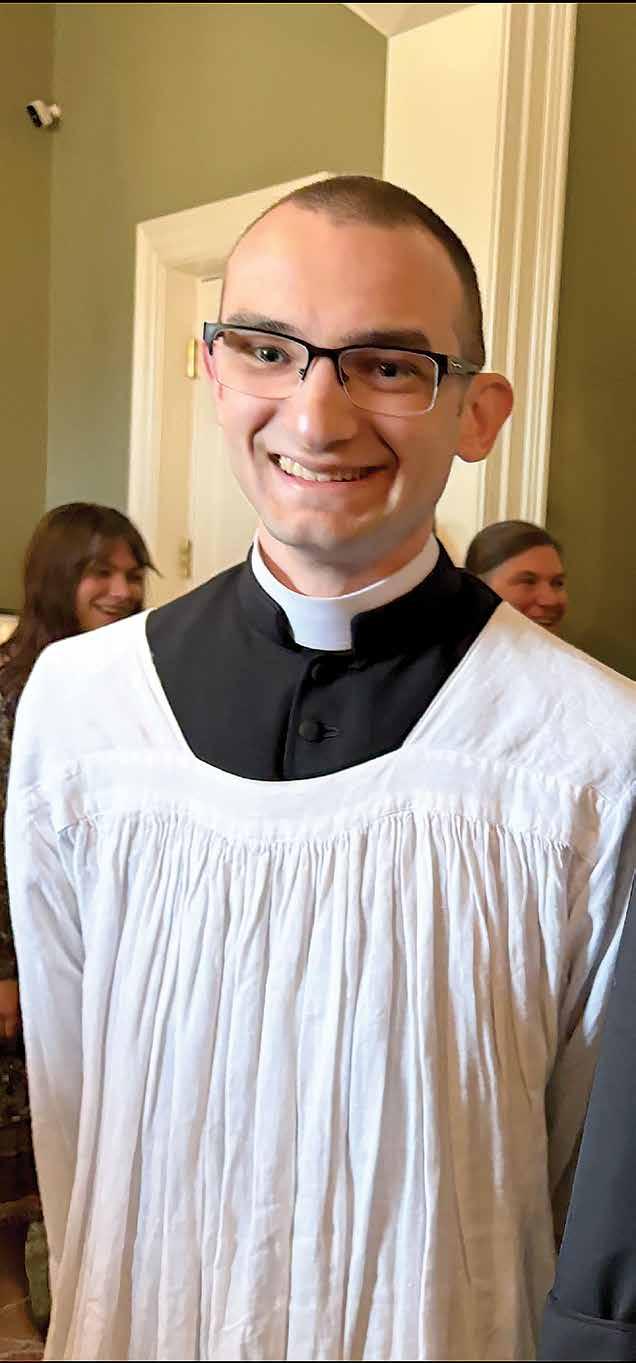
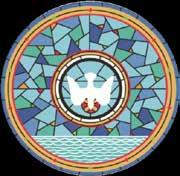
The parish family of St. Matthew Catholic Church gives thanks for their faithful service, spiritual leadership, and unwavering dedication to Christ and His Church.
May God continue to bless them abundantly.
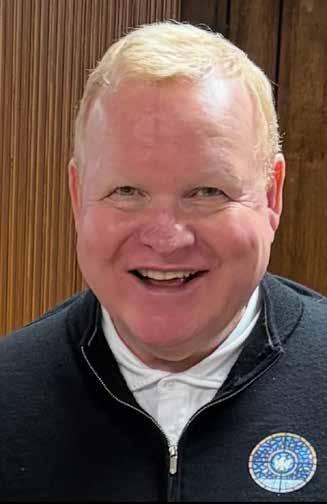
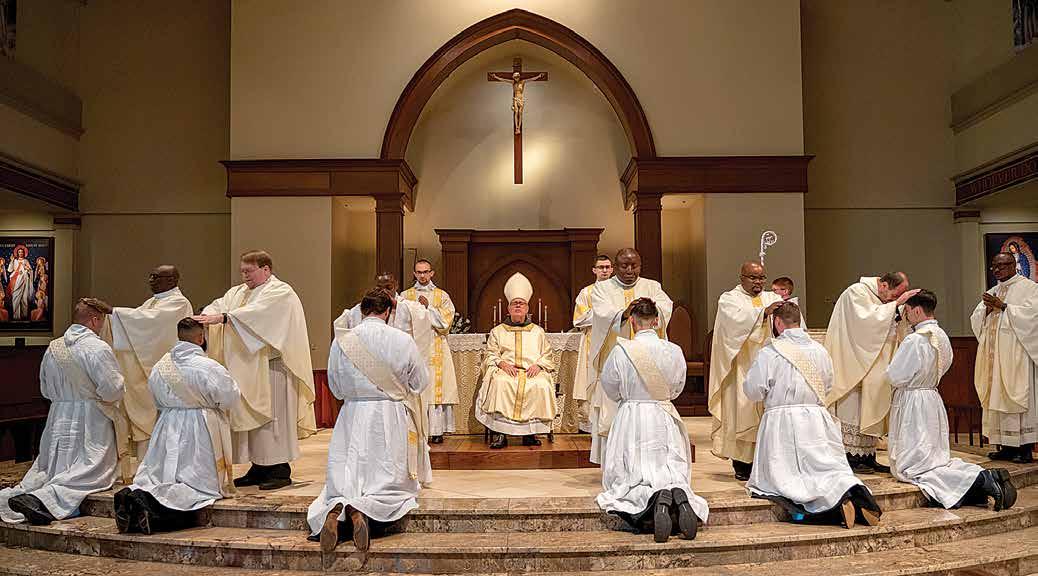
CHRISTINA LEE KNAUSS clknauss@rcdoc.org
— La Diócesis de Charlotte recibió seis nuevos sacerdotes el sábado cuando fueron ordenados por el obispo Michael Martin en la iglesia St. Mark en Huntersville.
Los nuevos sacerdotes son: el padre Christopher Angermeyer, el padre Anthony del Cid Lucero, el padre Nicholas Kramer, el padre Kolbe Murrey, el padre Andrew Templeton y el padre Joseph Yellico.
Aproximadamente 1,300 personas llenaron la iglesia e incluso se desbordaron hacia el salón parroquial para presenciar cómo estos seis hombres comenzaban una nueva vida de servicio a Cristo, Su Iglesia y los fieles. La ordenación también fue vista por más de 200 personas a través de la transmisión en vivo, incluyendo a la familia del padre Lucero, que la siguió desde Guatemala.
Al inicio del rito de ordenación, los seis hombres se presentaron ante el obispo Martin y declararon su disposición a ser ordenados y asumir los deberes del sacerdocio.
El obispo Martin ofreció una homilía centrada en la importancia de tener una visión clara en el ministerio sacerdotal.
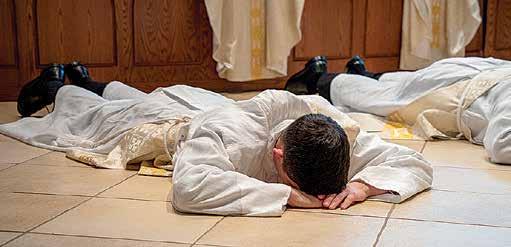
TROY C. HULL, AIDAN CRETER | CATHOLIC NEWS HERALD
(Arriba) Seis hombres fueron ordenados sacerdotes en la Diócesis de Charlotte el 14 de junio en la Iglesia St. Mark en Huntersville por el obispo Michael Martin. Durante la Letanía de Súplica, los candidatos al sacerdocio se postran ante el altar, un gesto que expresa su indignidad y total dependencia del Señor.
Relató el estrés que le provocó un reciente examen de la vista, incluyendo el desafío de elegir entre dos líneas de texto casi idénticas. “¿Cuál es más clara, la uno o la dos?”, repetía el optometrista. Buscar una visión clara de lo que Dios quiere será ahora la misión de su vida, les dijo a los candidatos.
“El resto de su vida será un camino hacia la claridad. ¿Podrán ver con claridad a través de la neblina y la confusión que a veces presenta el mundo?”, preguntó. “Su visión en este momento no solo es
importante para ustedes, sino para toda la Iglesia. Porque hacia donde ustedes guíen, gracias a lo que vean, es hacia donde otros seguirán.”
El obispo Martin dijo que las lecturas del día ofrecían lecciones importantes sobre la claridad en el ministerio. La primera lectura, del profeta Ezequiel, se centraba en la imagen de un pastor que busca a sus ovejas, incluidas las extraviadas, heridas y débiles. Exhortó a los nuevos sacerdotes a reconocer el dolor del mundo y la importancia de llegar a todos aquellos a
quienes están llamados a servir.
“Ezequiel habla de salir a buscar, de ver, a la oveja perdida, a la oveja rota, a la oveja herida”, dijo. “Ustedes también deben verlas, y estar dispuestos a salir a traerlas de vuelta, caminar con ellas, hacerles saber que son vistas, conocidas y amadas.”
La segunda lectura, de la carta a los Hebreos, se enfocaba en la belleza de la obediencia a través del sufrimiento, y el ejemplo perfecto de la obediencia de Cristo manifestado en la crucifixión.
“La obediencia de ustedes se manifestará en sus propias cruces, en las dificultades de la vida que tendrán que soportar”, dijo. “Habla de este llamado a la obediencia a través del sufrimiento como un llamado de Dios. Y lo es. Lo que ustedes emprenden hoy es un llamado de Dios.”
Continuó: “Nadie elegiría por cuenta propia aquello a lo que ustedes han dicho que sí. Tomen conciencia de que han sido llamados por Dios al sacrificio. Que eso se reafirme cada día, en medio de las dificultades y los desafíos. Reconozcan: ‘Este sacerdocio es a lo que Dios me ha llamado, y lo abrazo.’”
El obispo Martin exhortó a los hombres a mantener su visión enfocada en Cristo, de la misma manera que un agricultor debe fijar la vista en un punto del horizonte para mantener rectos los surcos al arar un campo.
“Hermanos, el punto en el horizonte está claro. ¿Uno o dos? Solo hay uno. Ese
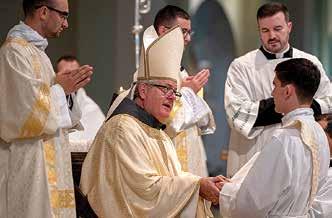
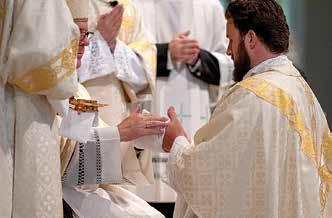
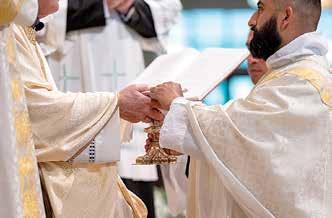
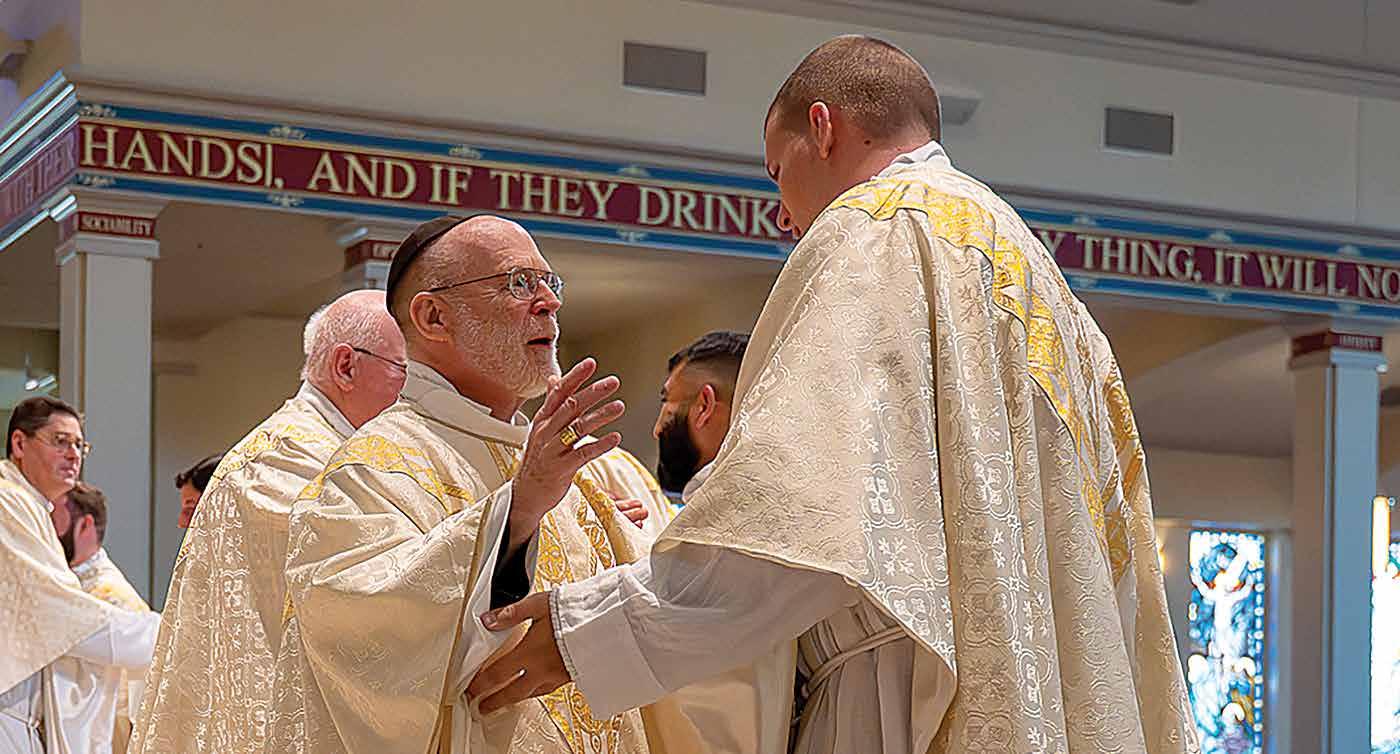
punto en el horizonte es Jesucristo, el sumo sacerdote, crucificado por ti y por mí”, dijo. “Mantengan la mirada en Él, y dejen que los guíe a ustedes y a todas las ovejas que servirán hacia un cielo nuevo y una tierra nueva, donde la cosecha es abundante, fértil y hermosa.”
Tras la homilía, los hombres se postraron en el suelo durante la Letanía de las Súplicas. Luego, el obispo impuso sus manos sobre ellos y oró. Una larga fila de sacerdotes presentes en la ceremonia también les impusieron las manos como símbolo de unidad sacerdotal.
Los seis fueron luego revestidos con la estola y la casulla por sacerdotes que jugaron papeles significativos en sus vidas. Fueron ungidos con el sagrado crisma y recibieron el pan y el vino como símbolo de su nueva capacidad para celebrar la Santa Misa. Finalmente, recibieron el beso
fraternal de paz del obispo Martin y del resto de los sacerdotes presentes. El coro de St. Mark interpretó una bella selección de cantos y himnos para acompañar la ceremonia, y el coro de la parroquia Our Lady of Consolation en Charlotte cantó “Total Praise” de Richard Smallwood durante la imposición de manos.
Después de la Misa, las familias de los nuevos sacerdotes se reunieron en el santuario para tomarse fotos con el obispo Martin. Mientras esperaban su turno, algunos padres reflexionaron sobre el significado del día.
“Es una gran alegría poder ofrecer a mi hijo a la Iglesia,” dijo Sarah Kramer, madre del padre Nicholas Kramer. “Espero que

su ministerio esté impregnado de belleza y verdad.”
Carlton Murrey, padre del padre Kolbe Murrey, expresó que fue un honor ver a su hijo ordenado.
“Esto se sintió como el fin de un viaje y el comienzo de otro,” dijo Carlton Murrey. “Mi hijo se adentra en una vida de servicio y sacrificio para la Iglesia.”
Tras su ordenación, el obispo Michael Martin anunció los lugares donde servirán los nuevos sacerdotes a partir del 8 de julio:
n Padre Christopher Angermeyer: Parroquia St. Mark en Huntersville
n Padre Anthony del Cid Lucero: Parroquia St. Michael the Archangel en Gastonia
n Padre Nicholas Kramer: Parroquia St. Matthew en Charlotte
n Padre Kolbe Murrey: Parroquia St. Thomas Aquinas en Charlotte
n Padre Andrew Templeton: Parroquia St. Luke en Mint Hill
n Padre Joseph Yellico: Capellán universitario en UNC-Charlotte
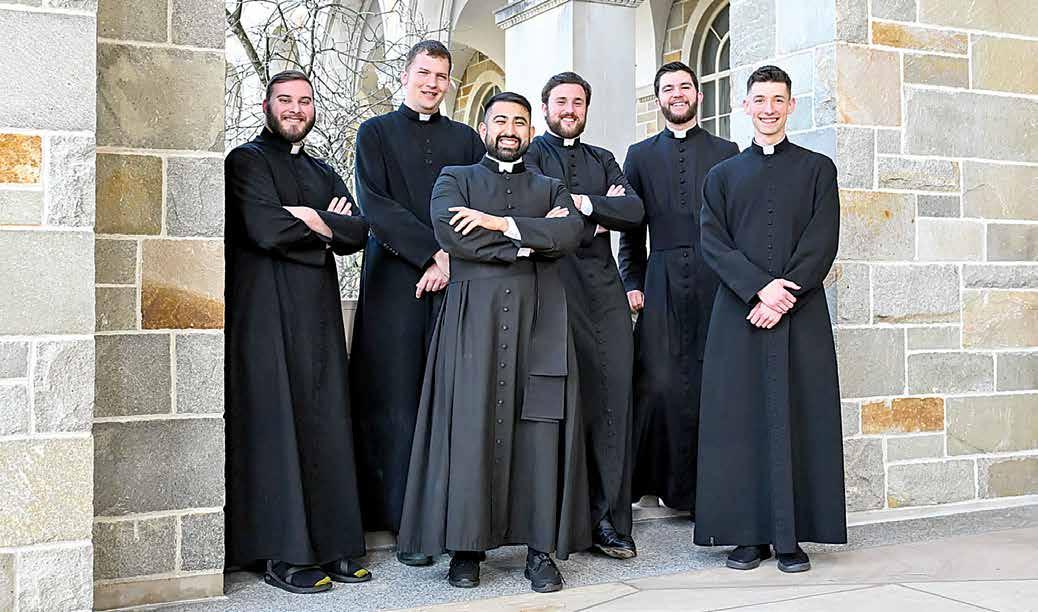
Home parish: St. Thomas Aquinas, Charlotte
Birthplace and raised in: Charlotte Age: 28
How do you feel like your parish contributed to your vocation and a rising number of vocations from St. Thomas Aquinas in Charlotte?
“It helped that the parish is diverse with people from all different backgrounds, so you get to experience the worldwide Catholic faith. One of the biggest things that shaped me was the prayers of the people. There are people who would pray the rosary every single week for vocations and that has led us to have a good amount of vocations coming from St. Thomas Aquinas Parish.”
Home parish: St. Joseph, Newton
Birthplace and raised in: Hickory
Age: 30
When did you first realize you had a call to the priesthood?
“My serious discernment began the year I graduated from high school. I knew that I was called to do great things in life. I always saw the love my parents had for Our Lord and the Blessed Mother and was something that I
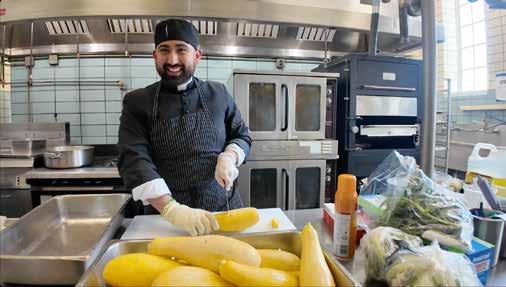
wanted to have from a young age. As a young adult outside of high school, I started to really ask God what He wanted from me. From there, I noticed my profound longing for the Lord in prayer, service, and in the sacraments. The Blessed Virgin Mary was also always a guide through my discernment.”
Home parish: St. Margaret Mary, Swannanoa
Birthplace: Omaha, Nebraska
Raised in: Old Fort
Age: 25
What is something someone would be
surprised to learn about you?
“For a while in high school, I worked as a mountain bike mechanic in downtown Asheville. It was a really fun job. I always loved the mechanical aspects of things, and mountain biking and riding. I got an opportunity later in high school to work as a mechanic, which in of itself was a lot of fun. And working in downtown Asheville was its own little adventure because the characters who frequented our shop were a lot of fun to hang out with.”
Home parish: St. John the Baptist, Tryon
Birthplace: Durham
Raised in: Mills River
Age: 25
What’s something people would be surprised to learn about you?
“Something people would be surprised to learn about me is that when I was in high school, I started keeping bees. I had a good friend who had kind of started doing that. I was like, ‘Oh, that’s interesting. I guess I’ll do that as well.’”
The bees are still at his family’s house, he said, and his mom took care of them while he was away at seminary. Murrey said he doesn’t plan to bring the bees to his parish assignment, but he wouldn’t mind helping with the bees at St. Matthew Parish.
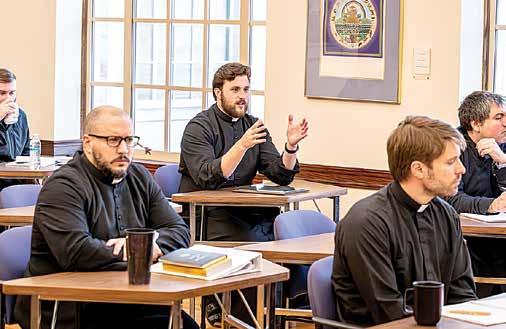
Home parish: St. Michael the Archangel, Gastonia
Birthplace and raised in: Gastonia
Age: 26
What’s something people would be surprised to learn about you?
“Something that people would be surprised to learn about me is that I’m afraid of heights and I don’t like roller coasters, but I want to learn how to fly a plane. It’s a bit of an ironic thing.”
Home parish: St. Mark, Huntersville
Birthplace: Long Island, New York, moved to North Carolina in 2006
Age: 30
What role does music play in your vocation?
“Music always has been a source of consolation and comfort for me. It’s also helped me look at how faith and reason are not two
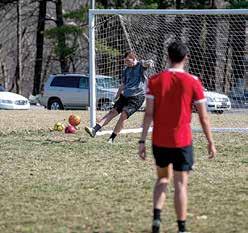
separate things, but they’re complementary to each other. You have the theory of music, which is more mathematical and abstract, and then you have the artistry of music. Both of those things work together. So, in the same way, in theological training, you have the abstract, the philosophical principles that you follow within that. But at the same time, there’s just so much beauty that’s just around that and a part of it. So music has really been a source of reflection of a bunch of different aspects of reality.”
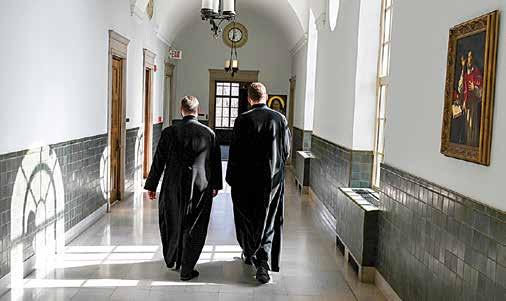

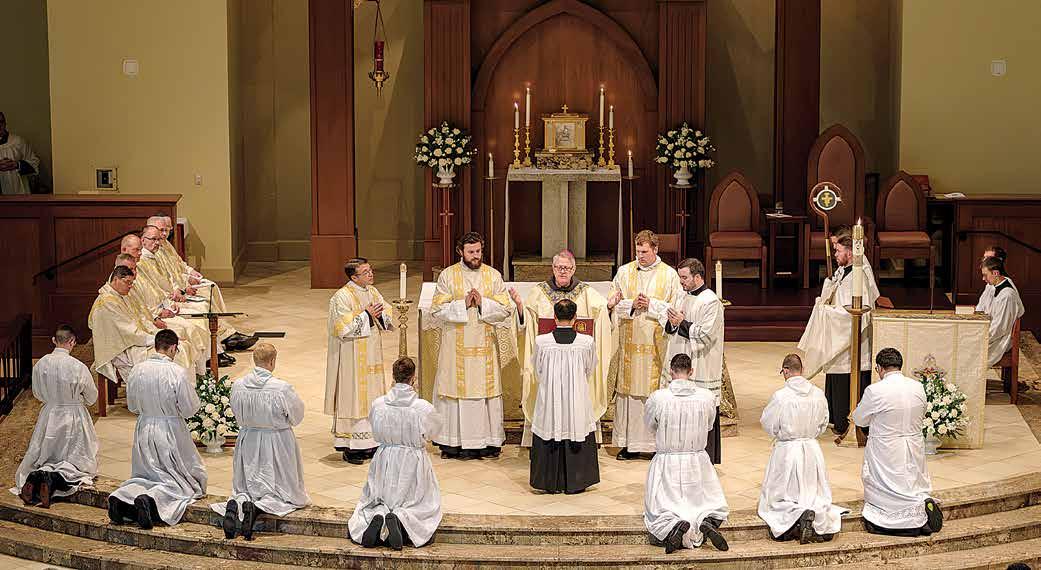
STORY BY LISA M. GERACI. PHOTOS BY TROY C. HULL, WILL CRETER AND AIDAN CRETER catholicnews@rcdoc.org
— Alleluias reverberated from the tiled floors of St. Mark up to the heavens as 900 friends, family and clergy celebrated the ordination of seven seminarians as transitional deacons on June 7, taking them one step closer to the priesthood.
Bishop Michael Martin presided over the Mass. His message to the newly ordained men: Go show the world their love for Jesus – particularly for those on the margins – as they become the public face of the Church.
“Don’t lose the moment,” he urged them. “You are about to embark upon His public ministry carried out in seven very different men. But a public ministry no less, and an important one where there are great expectations, but with greater grace.”
Much like the 12 apostles spoken about in Acts 6, who chose seven among their group to go out and minister to the world, these seven seminarians were chosen to publicly share their love of Christ.
Robert Warren Bauman and Peter James Townsend, both from St. Ann Parish in Charlotte; Michael Patrick Camilleri, from St. Elizabeth Parish in Boone; John Warren Cuppett, from St. Leo the Great Parish in Winston-Salem; Maximilian Karl Frei, from St. Dorothy Parish in Lincolnton; Bryan Ilagor, from Our Lady of the Americas Parish in Biscoe; and Michael James Lugo, from Immaculate Conception Parish in Forest City, received their first foundational sacramental ordination within holy orders - the diaconate.
All seven attend Mount St. Mary’s Seminary and School of Theology in Cincinnati, Ohio. Six were among the first classes at St. Joseph College Seminary in Mount Holly.
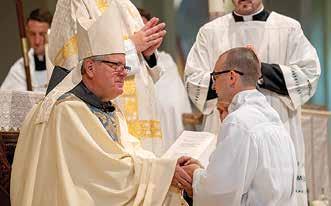
‘LET YOUR HEART BE AN OPEN BOOK’
“God calls you to publicly love Him,” Bishop Martin told the men in his homily. “In return, do not let your hearts be taken elsewhere. Do not allow this world to suggest to you that He is not enough for you. He is more than enough
and will grace and bless and shower your heart with His Sacred Heart.”
He continued, “Trust in Him and His love alone and let the world see that.”
Then, drawing from the reading from Acts, the bishop reminded the men to always serve the people, especially those on the margins.
“The real mission of holy orders is to hold up to the world a vision of who the Church is, and to continuously remind ourselves that all of us are responsible for each other. That the nature of the Church is communal, and we are only as communal as when we care for those who are most uncared-for, whether that be the unborn or the alien,” he said.
Bishop Martin continued with his third and “most difficult” aspect of holy orders. “Christ’s public mission led Him to the cross,” he told the men, advising that they must be willing to die to themselves.
Following the homily, the deacons knelt before the bishop and affirmed their intentions to serve as deacons, then they lay prostrate before the altar as the congregation prayed the Litany of Supplication to invoke the saints to ask the blessing of God upon them.
Then in silence, Bishop Martin laid his hands on the head of each man and prayed the prayer of ordination,
consecrating the seven as deacons. Each newly ordained deacon was then vested by a clergy member who inspired them during their journey. Clergy members reverently secured the stole over their shoulders, symbolizing their new responsibility and authority to serve, and then clothed the new deacons with the dalmatic they will use during liturgies. The seven deacons can now proclaim the Gospel at Mass, preach homilies when invited by the presiding priest, prepare the altar for the Eucharist, distribute Holy Communion, bring Viaticum to the dying, and officiate at baptisms, weddings and funerals.
‘WE ARE IN THIS TOGETHER’
Earlier in his homily, the bishop told the newly ordained. “My brothers, look at these your brother deacons and your brother priests and your brother bishop here,” he said. “We pledge to you that you will not walk that difficult challenge by yourself. Don’t try. It’s a dead end. You need us, and we need you. We are in this together as we publicly are willing to die to ourselves for a greater goal, a greater good for Christ’s will.”
The ordination Mass was an emotional culmination of years of hard work, study and spiritual formation.
Afterward, Deacon Bauman said, “When I was lying on the floor, I felt the general sense of all the angels and saints that have been praying for us leading up to this moment... It was a very powerful experience.”
Kathy Schmugge was among the large crowd, watching the ordination of her nephew, Deacon Frei.
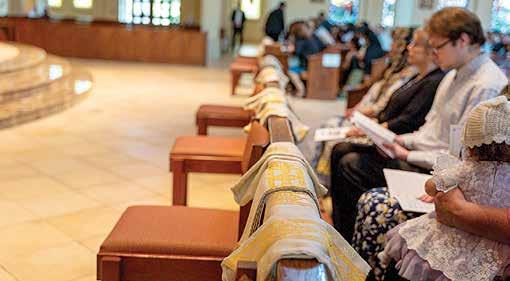
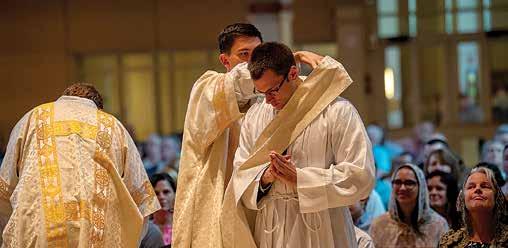
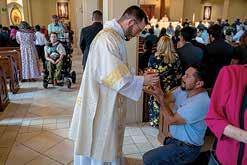
“I thought the bishop’s homily was wonderful,” she said. “He gave them their marching orders. You can just sense the Holy Spirit was here.”
The newly ordained are called “transitional” deacons instead of “permanent” deacons, a distinction that reflects their intent to serve a year in pastoral, liturgical and educational preparation before being ordained into the priesthood. Diaconate is the first of three ranks of holy orders; the other two are priest and bishop.
As the men embark on this phase of the journey, Bishop Martin reassured them: “May you know how happy the Church of Charlotte is for all of you. How proud we are of all of you, and how we commit our prayerful support for you as you publicly give witness to what you’ve been called to carry out.”
More online
At www.catholicnewsherald.com : Get to know our new priests and deacons
On the Diocese of Charlotte’s YouTube channel : View the ordination Masses for both priests and deacons and hear from our newest priests in videos
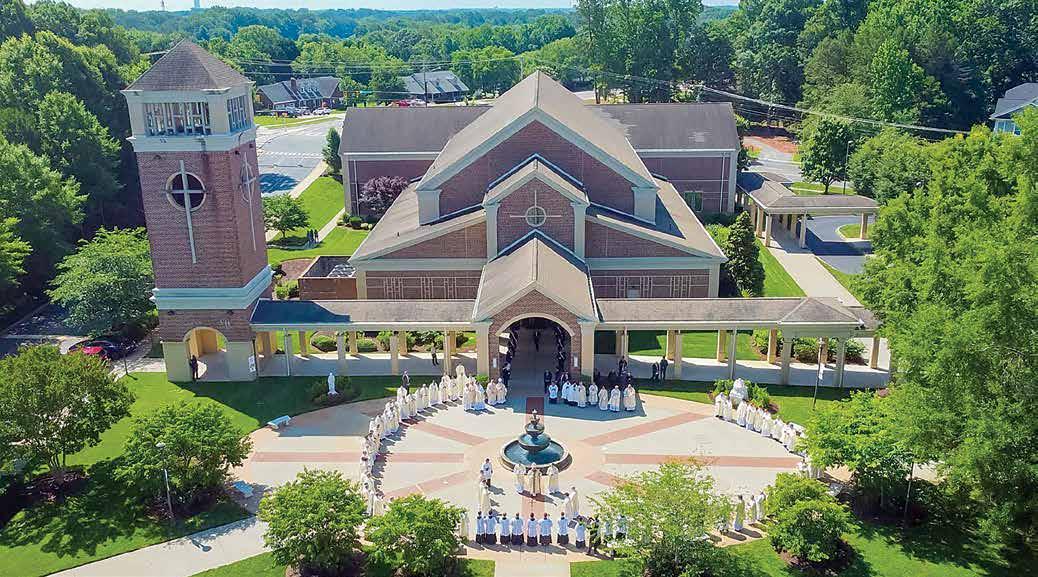
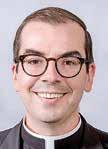
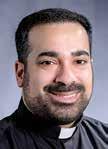
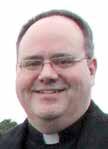
Father
Father
Father
Father
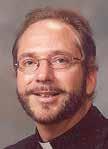
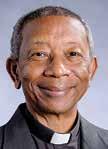
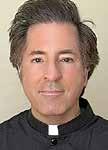
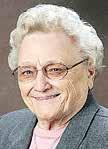
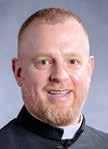
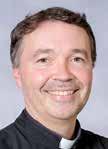
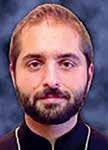
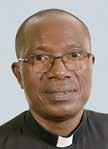
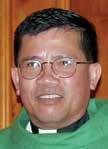
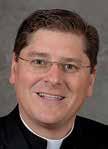
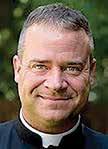
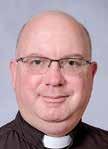
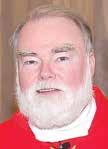
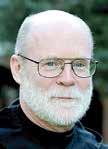
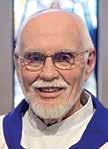
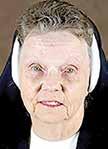
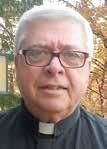
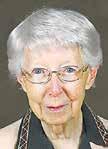
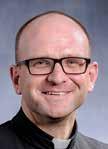
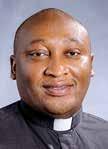

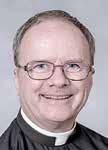

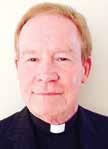

Father Gabriel Carvajal-Salazar
Father John Eckert
Father David Miller
Father Marvin A. Navas
Father Lucas Rossi
30 YEARS
Father James Collins
Father Eric L. Houseknecht
Father Mark S. Lawlor
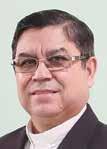
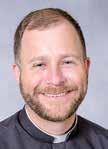
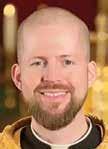
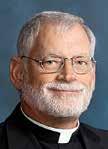
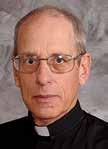
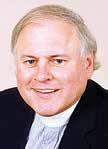
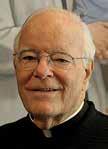
30 YEARS
Deacon Wayne Adams
Deacon Michael Langsdorf
Deacon Carlos Medina Sr.
Deacon Rafael Torres
Deacon John Weisenhorn
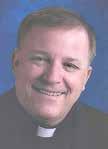
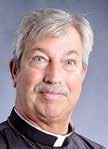
70 YEARS
Father James Solari
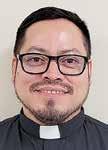
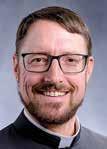
35 YEARS
Father John Allen
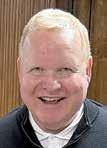
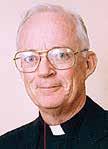
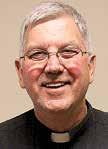
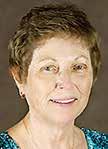

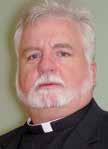
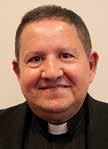
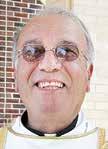
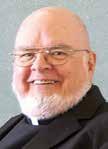
55 YEARS
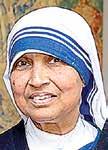
25 YEARS
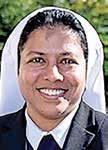

‘Confíen
STORY BY LISA M. GERACI. PHOTOS BY TROY C. HULL, WILL CRETER AND AIDAN CRETER catholicnews@rcdoc.org
— Los aleluyas resonaron desde los pisos de baldosas de St. Mark hasta el cielo mientras 900 amigos, familiares y miembros del clero celebraban la ordenación de siete seminaristas como diáconos transitorios el 7 de junio, llevándolos un paso más cerca del sacerdocio.
El obispo Michael Martin, OFM Conv., presidió la Misa. Su mensaje a los hombres recién ordenados: Salgan y muestren al mundo su amor por Jesús – particularmente por aquellos en las periferias – al convertirse en el rostro público de la Iglesia.
“No pierdan el momento,” les instó. “Están a punto de embarcarse en Su ministerio público, llevado a cabo en siete hombres muy diferentes. Pero un ministerio público al fin, y uno importante, donde hay grandes expectativas, pero con mayor gracia.”
Al igual que los 12 apóstoles mencionados en Hechos 6, que eligieron a siete de entre ellos para salir y ministrar al mundo, estos siete seminaristas fueron elegidos para compartir públicamente su amor por Cristo.
Recibieron su primera ordenación sacramental dentro de las órdenes sagradas – el diaconado: Robert Warren Bauman y Peter James Townsend, de la parroquia St. Ann en Charlotte; Michael Patrick Camilleri, de la parroquia St. Elizabeth en Boone; John Warren Cuppett, de la parroquia St. Leo the Great en Winston-Salem; Maximilian Karl Frei, de la parroquia St. Dorothy en Lincolnton; Bryan Ilagor, de la parroquia Our Lady of the Americas en Biscoe; y Michael James Lugo, de la parroquia Immaculate Conception en Forest City.
Todos asisten al Seminario y Escuela de Teología Mount St. Mary’s en Cincinnati, Ohio. Seis de ellos formaron parte de las primeras clases del Seminario St. Joseph
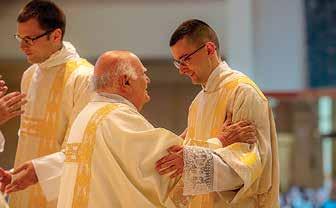
(Arriba) Siete hombres dieron un paso más hacia el sacerdocio el 7 de junio, cuando fueron ordenados diáconos para la Diócesis de Charlotte por el obispo Michael Martin. (Superior) Los siete fueron revestidos con la estola, signo del oficio de servicio del diácono, y la dalmática.
College en Mount Holly.
‘QUE SU CORAZÓN SEA UN LIBRO ABIERTO’
“Dios los llama a amarlo públicamente,” dijo el obispo Martin en su homilía. “A cambio, no dejen que sus
corazones se desvíen. No permitan que el mundo les sugiera que Él no es suficiente para ustedes. Él es más que suficiente y llenará y bendecirá su corazón con Su Sagrado Corazón.”
Continuó: “Confíen en Él y en Su amor solamente, y dejen que el mundo lo vea.”
Luego, citando la lectura de Hechos, el obispo recordó a los hombres servir siempre al pueblo, especialmente a los marginados.
“El verdadero propósito de las órdenes sagradas es mostrar al mundo una visión de lo que es la Iglesia, y recordarnos continuamente que todos somos responsables los unos de los otros. Que la naturaleza de la Iglesia es comunitaria, y solo somos verdaderamente comunidad cuando cuidamos de quienes menos cuidados reciben, ya sean los no nacidos o los inmigrantes,” afirmó.
El obispo Martin continuó con el tercer y “más difícil” aspecto del orden sagrado: “La misión pública de Cristo lo llevó a la cruz,” les dijo, aconsejándoles que deben estar dispuestos a morir a sí mismos.
Tras la homilía, los diáconos se arrodillaron ante el obispo y afirmaron su intención de servir como diáconos, luego se postraron ante el altar mientras la congregación rezaba la Letanía de Súplicas para invocar a los santos y pedir la bendición de Dios sobre ellos.
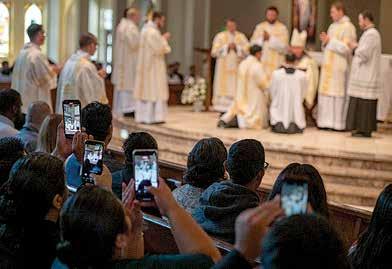
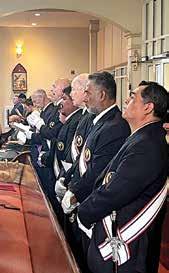
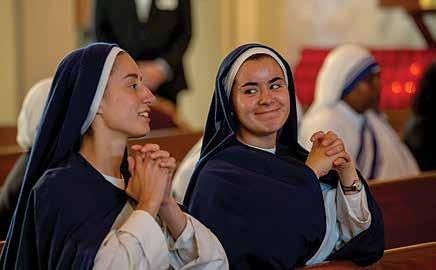
Familiares, Caballeros de Colón y amigos se reunieron para presenciar la ordenación de los siete hombres como diáconos transitorios. A los recién ordenados se les llama “diáconos transitorios” en lugar de “diáconos permanentes”, una distinción que refleja su intención de servir durante un año en preparación pastoral, litúrgica y educativa antes de ser ordenados sacerdotes.
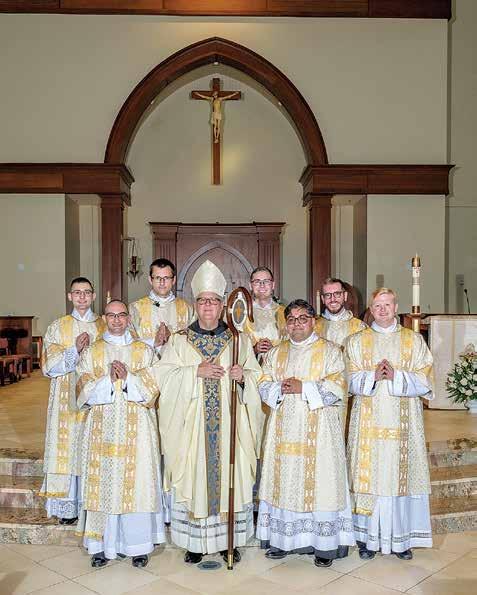
Los nuevos diáconos ordenados, en la foto junto al obispo Michael Martin, ahora pueden proclamar el Evangelio en la Misa, predicar cuando el sacerdote se los solicite, preparar el altar para el sacrificio de la Eucaristía, distribuir la Comunión a los fieles y mucho más.
VIENE DE LA PÁGINA 18B
Luego, en silencio, el obispo Martin impuso las manos sobre la cabeza de cada uno y pronunció la oración de ordenación, consagrándolos como diáconos.
Cada nuevo diácono fue revestido por un miembro del clero que los inspiró durante su camino. Con reverencia, se les colocó la estola sobre los hombros, símbolo de su nueva responsabilidad y autoridad para servir, y se les vistió con la dalmática que usarán en las liturgias.
Ahora los siete diáconos pueden proclamar el Evangelio en la Misa, predicar homilías cuando el sacerdote celebrante lo permita, preparar el altar para la Eucaristía, distribuir la Comunión, llevar el Viático a los moribundos, y oficiar bautismos, bodas y funerales.
‘ESTAMOS EN ESTO JUNTOS’
La Misa de ordenación fue una culminación emocional de años de arduo trabajo, estudio y formación espiritual. Después, el diácono Bauman dijo: “Cuando estaba acostado en el suelo, sentí la presencia general de todos los
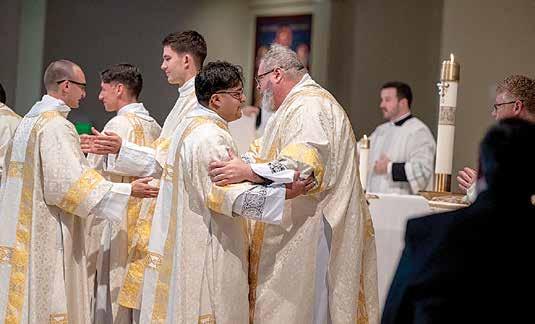
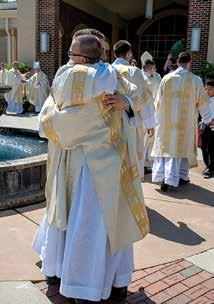
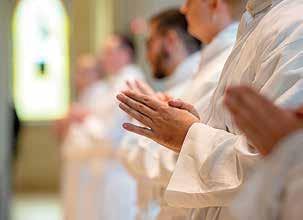
Los sacerdotes que concelebran la Misa ofrecen un saludo fraterno a los nuevos diáconos ordenados. Luego se reunieron afuera para felicitar a los jóvenes que están dando su siguiente paso, lleno de oración, hacia el sacerdocio.
ángeles y santos que han estado orando por nosotros hasta este momento... Fue una experiencia muy poderosa.”
Kathy Schmugge, quien estaba entre la gran multitud, observó la ordenación de su sobrino, el diácono Frei.
“Pensé que la homilía del obispo fue maravillosa,” dijo. “Les dio su misión. Se podía sentir que el Espíritu Santo estaba aquí.”
Los recién ordenados son llamados diáconos “transitorios” en lugar de “permanentes”, una distinción que refleja su intención de servir un año en preparación pastoral, litúrgica
y educativa antes de ser ordenados sacerdotes. El diaconado es el primero de los tres grados del orden sagrado; los otros dos son el presbiterado y el episcopado.
A medida que los hombres inician esta fase de su camino, el obispo Martin los tranquilizó:
“Que sepan lo feliz que está la Iglesia de Charlotte por todos ustedes. Qué orgullosos estamos de ustedes, y cómo nos comprometemos a apoyarlos con nuestras oraciones mientras dan testimonio público de aquello a lo que han sido llamados a llevar a cabo.”

Home parish: St. Ann, Charlotte
Born and raised in: Wilmington Age: 22
Interests/hobbies:
Hiking, disc golf, running and reading at a local coffee shop
Summer assignments in the diocese: Sacred Heart in Salisbury, Our Lady of Mercy in Winston-Salem, and St. Lucien and St. Bernadette, Spruce Pine/Linville.
CNH: Who vested you and why?
Bauman: “(Then) Deacon Kolbe Murrey, because he has been a good friend throughout my time in seminary.”
CNH: When did you first realize you had a call to the priesthood?
Bauman: “During an eight-day Ignatian silent retreat.”

Home parish: St. Elizabeth, Boone
Born in: Florida
Raised in: North Carolina Age: 25
Interests/hobbies:
Learning languages and calligraphy
Summer assignments in the diocese: St. Jude, Sapphire; Our Lady of the Mountains, Highlands; St. Gabriel, Charlotte
CNH: Who vested you and why?
Camilleri: “Deacon Ron Caplette: because I know him from when I was growing up.”
CNH: When did you first realize you had a call to the priesthood?
Camilleri: “I first heard the call to the priesthood when I was very young – 3 or 4 years old. My family loves to talk about how I used to ‘play Mass,’ which is actually one of my earliest memories. I lost sight of the vocation in late elementary school until right before high school. I wanted to go into computer science.
“While preparing to enter high school, by the grace of God, I decided to pursue what He put on my heart from that early age, and I entered the college seminary.”

Home parish: St. Leo the Great, Winston-Salem
Birthplace: Cary
Raised in: Four Oaks Age: 27
Interest/hobbies: Sports and the outdoors, including hiking and camping
Summer assignments: Missionary work with the Community of Jesus Crucified in Louisiana
CNH: Who vested you and why?
Cuppett: “(Then) Deacon Christopher Angermeyer, because he is a good friend of mine and has been a good mentor.”
CNH: When did you first realize you had a call to the priesthood?
Cuppett: “I played baseball at Belmont Abbey College and clarified the call while at college. During high school I was interested in joining the seminary after I graduated. However, I did very little in pursuing it and soon it faded into the background. From then on and up until college, it was a fun idea – but nothing more. After high school I attended Belmont Abbey College on a baseball scholarship, where I played as a second baseman for four years.
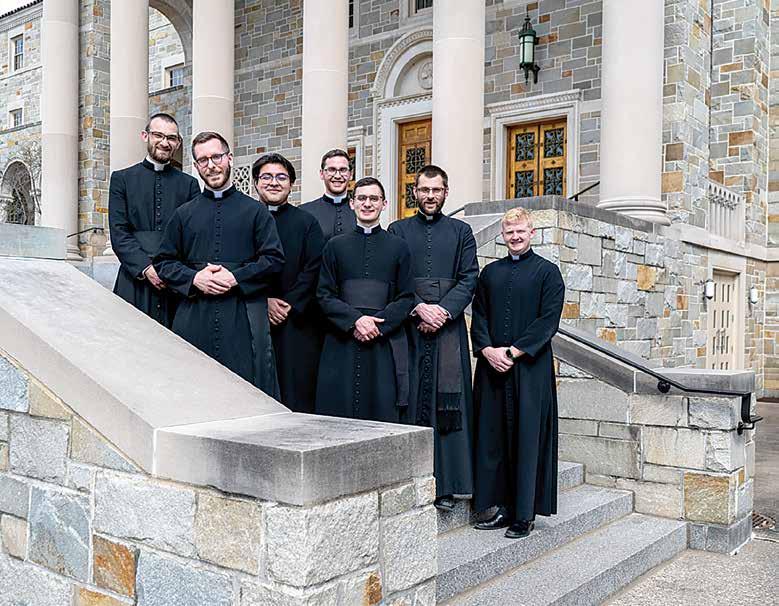
“During my time at the Abbey, I met Matthew Harrison, a Charlotte seminarian. I informed him of my past dream of becoming a priest and he invited me to visit St. Joseph College Seminary. I did, and then all my previous desires and hopes for the priesthood came crashing back. I quickly sought help in my discernment with the diocesan Vocations Office. My senior year at the Abbey, I started spiritual direction with Father Brian Becker, the diocese’s promoter of vocations, and he helped me tremendously by answering all my questions, fears and thoughts regarding my vocation. Together we discovered that my call to the priesthood was very real, and he referred me to Father Christopher Gober, diocesan vocations director, to begin the process of applying.”

Home parish: St. Dorothy, Lincolnton
Birthplace: Villingen, Germany
Raised in: Braeunlingen, Germany
Age: 30
Interests/ hobbies: Chess, fitness and spiritual reading
Summer assignments in the diocese: St. Patrick Cathedral, Charlotte, St. John the Evangelist in Waynesville, and St. John the Baptist in Tryon
CNH: Who vested you and why?
Frei: “(Then) Deacon Anthony del Cid Lucero, because he is a very joyful friend who I can always count on.”
CNH: When did you first realize you had a call to the priesthood?
Frei: “The first time I can remember when I had a calling was when I was waiting in the confession line as a kid. Many years later in my mid-20s, after living a worldly and superficial life, it was Our Lord once more who called me to serve Him as a priest.”

Home parish: Our Lady of the Americas, Biscoe
Birthplace: Pinehurst
Raised in: Zitácuaro, Michoacán, Mexico
Age: 29
Interest/ hobbies: Expanding my knowledge of different cultures, such as Japanese, Korean, Filipino and many others; watching TV and movies; and following La Liga, the Premier League and other football leagues
Summer assignments in the diocese: Immaculate Conception in Hendersonville and St. Francis of Assisi in Lenoir
CNH: Who vested you and why?
Ilagor: “Deacon Charles D. Hindbaugh, because of our friendship over the past years and his role model as a humble deacon serving the local community.”
CNH: When did you first realize you had a call
to the priesthood?
Ilagor: “Many seminarians can recall dressing up as priests, and that was their realization. However, I did not have a big realization moment. Instead, it was a step I decided to take in my life (at least, that’s how I saw it at first). I was not big into participating in church activities, but I always found myself helping in the church instead of going out with my friends to watch a movie. I always found myself at peace while serving the church.
“Hence, if I had to decide a moment in my life when I first realized, it was when I was helping my pastor, Father Ricardo Sanchez, to close up the church one night. After locking all the doors, turning off all the lights, and making sure no one was left behind, I met him at the sanctuary steps to say goodbye. We were the only ones left inside the church, and he asked me a question I have not forgotten: ‘Bryan, do you want to be a priest?’ Before I could respond, he said, ‘Before you answer, look at the tabernacle – you are not going to answer to me but to God.’ ‘Great,’ I thought to myself. I couldn’t lie or give an incomplete answer. I thought, ‘If this is God’s will, I will give it a shot.’ Shortly after, I told my pastor, ‘Yes.’ This first ‘step’ was accepting that God called me to enter the seminary. In the past, many parishioners had said, ‘You should be a priest,’ but I dismissed them with ‘I don’t think it is my calling.’ Seven years later, I am here, realizing I will be ordained a deacon.”

Home parish:
Immaculate Conception, Forest City
Birthplace: Kansas
Raised in: Rutherfordton Age: 24
Interests/ hobbies:
Running, skiing, euchre (a card game), reading and piano
Summer assignments in the diocese: Holy Cross in Kernersville, St. Lucien and St. Bernadette in Spruce Pine/Linville, St. John the Baptist in Tryon
CNH: Who vested you and why?
Lugo: “(Then) Deacon Joseph Yellico. We entered St. Joseph’s the same year and he has been a great brother to me over the course of seminary.”
CNH: When did you first realize you had a call to the priesthood?
Lugo: “They were several points growing up that I remember seriously considering it as an option. But I really started taking it seriously during Quo Vadis Days in the summer of 2018. Throughout the course of that week, spending time in prayer and learning about the priesthood, it seemed to me that the priesthood was the summation of everything I wanted out of life, particularly the way in which the life of a priest is

Home parish: St. Ann, Charlotte
Birthplace: Racine, Wisconsin
Raised in: Charlotte Age: 24
Interests/hobbies: “I enjoy playing guitar in my free time and reading a good novel (right now I’m reading Dostoevsky’s “Brothers Karamozov”). I’ve also found that I enjoy learning languages. Right now, I’m working on Spanish and would like one day to work on French (maybe even Italian and German).”
Summer assignments in the diocese: “During my college days, I participated in the St. Joseph Workers’ program where my brother seminarians and I traveled around the diocese performing different odd jobs like lawn mowing, mulch spreading and painting.
“After entering theology, I spent my summers at St. John the Baptist Parish in Tryon, St. Mark Parish in Huntersville and Our Lady of Grace Parish in Greensboro.”
CNH: Who vested you and why?
Townsend: “(Then) Deacon Nicholas Kramer. He and I have known each other since high school and entered the seminary the same year. Over the years, I’ve been grateful to God for his friendship and the brotherhood that has formed between us.”
CNH: When did you first realize you had a call to the priesthood?
Townsend: “I always knew I wanted to be a priest, so I entered St. Joseph College Seminary straight out of high school.
“I first felt the call to the priesthood when
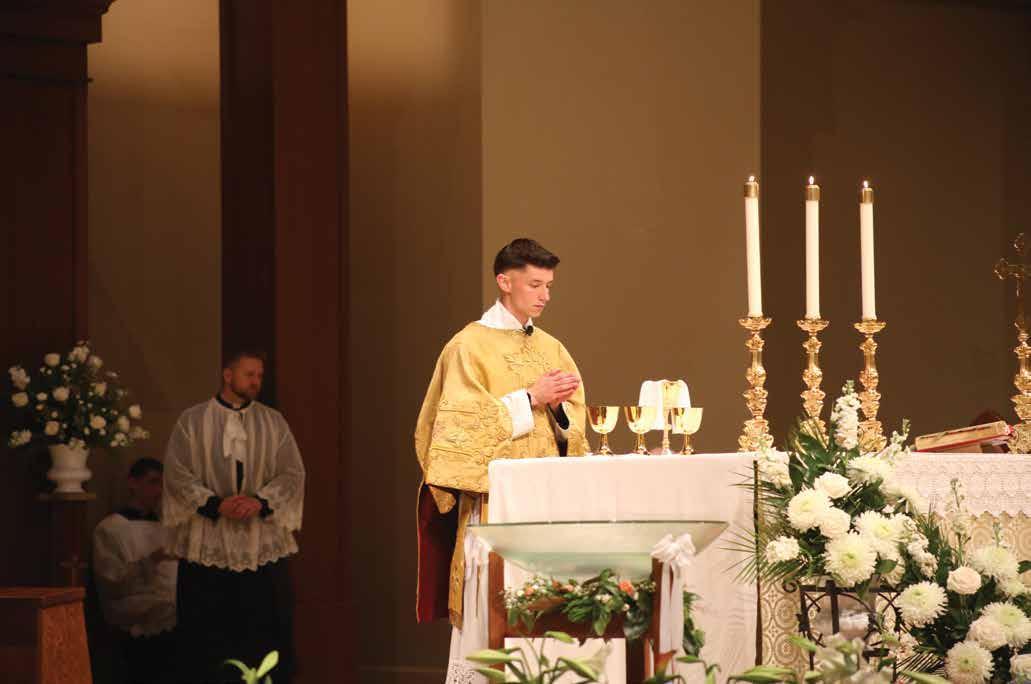
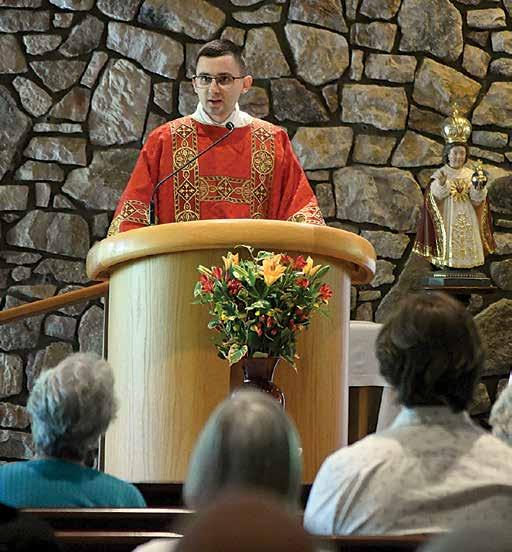

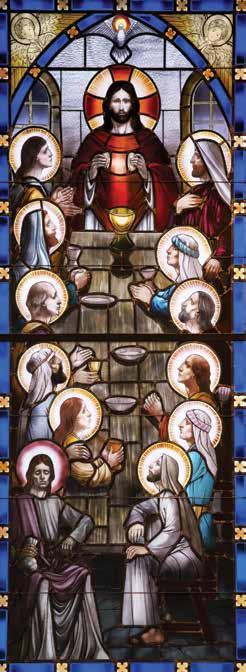





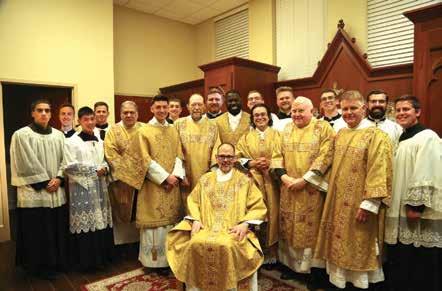



LISA M. GERACI lmgeraci@rcdoc.org
REIDSVILLE — Father Frank Seabo is celebrating his 25th anniversary as a priest in the Diocese of Charlotte. He recently took time for an interview with the Catholic News Herald to reflect on his vocation, what the Mass means to him, and what he likes about serving in a small parish:
Can you tell us a little about your upbringing?
Camden, N.J., is my home diocese. I have two brothers, Chip and Bob. My brother Bob is why I’m able to be here; he helps with my 91-year-old mother and cared for my dad. When I’m not at Holy Infant, I’m with my mother or brothers.
At my baptism the priest was going to baptize me “Francis,” but my father stopped him in the middle and said, “His name is Frank.” My father was a Methodist; he never converted, but it was his example that later inspired me to become a priest. He died around this time last year and I miss him terribly. Ma brought me up Catholic. My confirmation saint is Paul, and at the time I did not understand why I chose Paul because I was only 10. Now, though, it’s clear: Paul, like me, was a late vocation. I was ordained by Bishop William Curlin when I was 41. When and how did you get your calling to become a priest?
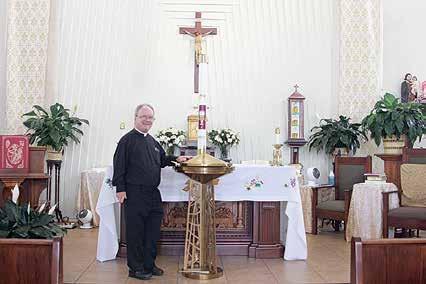
I started my discernment late. I was 37 and an active member of the Diocese of Raleigh. I was a Grand Knight in the Knights of Columbus, and I had a good job training police officers in criminal investigations using my company’s technology.
Just like Jesus knocked Paul to the ground and Paul said, “Who are you, Lord?” I had a personal encounter. I heard it in 1991. I was going to church at Sacred Heart in Raleigh, and Monsignor Gerald Lewis gave a homily about service. He said the word “service,” and it was like I was the only person in the whole church. I ended up spending over four years denying the call, telling myself I can’t be a priest. I didn’t go to Catholic school. I was never an altar server. But the feeling wouldn’t go away.
It was the strangest thing during discernment – a letter arrived from a dear friend with cerebral palsy, who struggles to speak or write. She wrote she dreamed I would be a wonderful priest. The second event was when my bowling buddy, 10 years my senior, always called me Frankie – a name nobody else used. Out of nowhere, he said, “Frankie, you know what? You would make a great priest.”
Then, a fourth-degree knight I knew, who was very honored and respected, was turning 70. I went up to him and said, “Happy birthday.” And he said, “Well, thank you.” And then he said, “But you know there’s something I always regretted.” He was very successful: wife, kids, grandkids, and he worked as a deputy. Very
clearly, he said to me, “I always wanted to be a priest, but never could.” How did you end up in the Diocese of Charlotte? Father Frank O’Rourke and Bishop William Curlin got me started in the Charlotte diocese. I spent a year with the Raleigh seminarians, but not making an application. I talked to Father O’Rourke, who was a good friend of mine through the Knights, and said, “I don’t think Camden is right for me, and I don’t think Raleigh is right for me.” Father O’Rourke said, “Come westward, man.” What do you like best about being a priest? Mass is number one for me. And Mass comes in different forms, which keeps things interesting. Yet every Mass I say, I say it like it’s my first Mass, I say it like it’s my only Mass, I say it like it’s my last Mass. I love it. And, then from the Mass comes my ministry, because I have the readings, I have the prayers of the day, and then I have the people. The Mass fuels me – I can’t get enough. My basic strengths outside the parish are visiting the sick, and inside the parish, teaching. I love to teach. I lead OCIA classes here and small retreats. I love sitting down with people, getting an idea of who they are and what they are about.
What are your favorite moments as a diocesan priest?
My most memorable things happen every single day. It has been 25 years, and I am not sure if there has been even a single day that was not unique. I look at people and I see Jesus. Seeing somebody smiling is enough to motivate me to keep going. How does Holy Infant compare over your years of ministry? I was first assigned to St. Lawrence Basilica and then St. Joseph in Bryson City, St. Margaret Mary Church in Swannanoa, St. Joan of Arc in Candler, then here. I’ve been in small parishes since the beginning. We are small, but we are very alive. Of course, you don’t always want a cookie-cutter parish, and this one is definitely unique. It was designed to look like a flower opening to the heavens. I am the longest-sitting pastor of Holy Infant since it started. This is actually the longest place I lived in my adult life. I’ve been here very happily for 12 years.
I’m not saying the world is perfect because this is not heaven, but I’m blessed here with a beautiful church family.
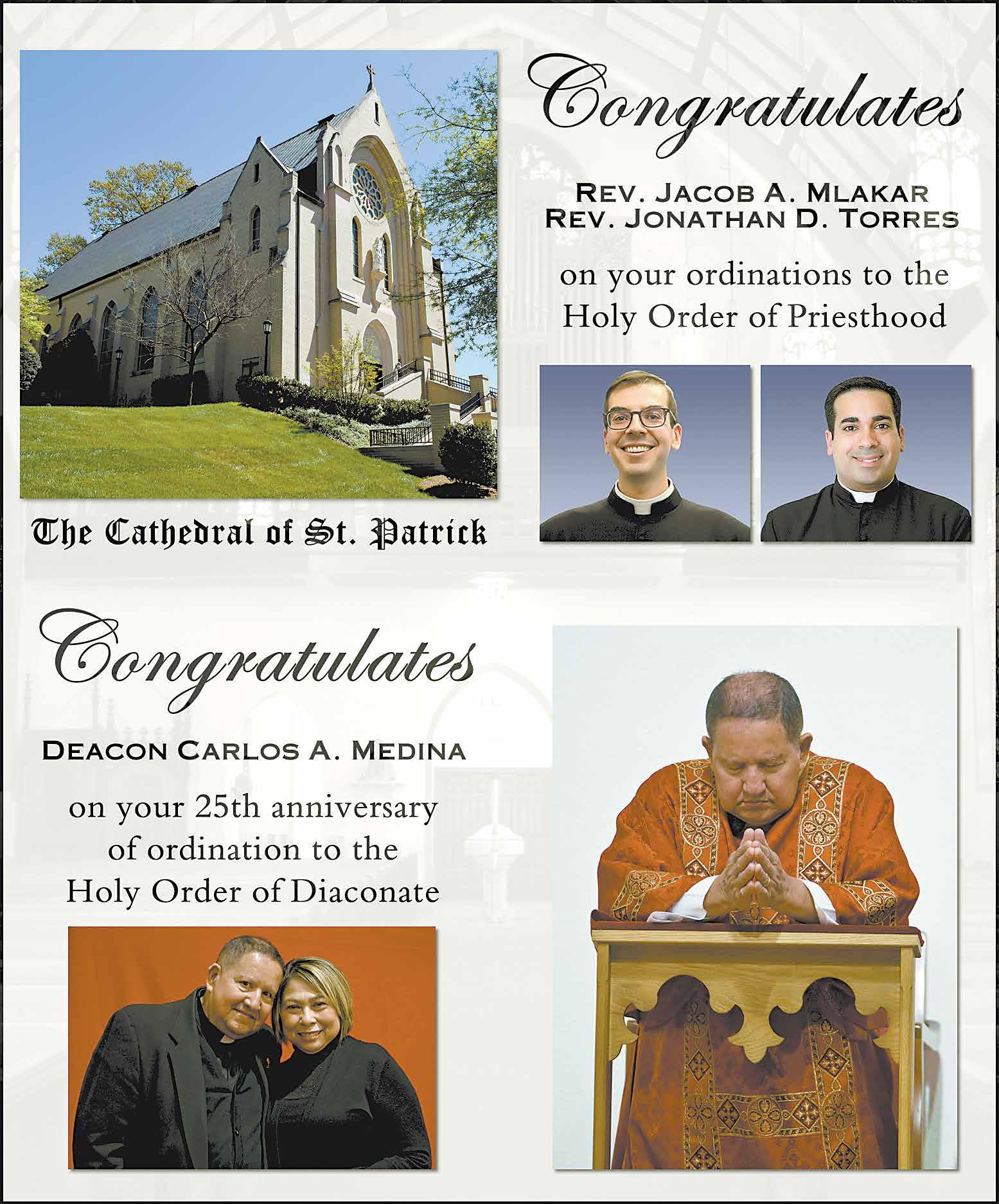
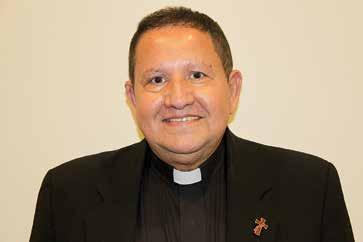
CHRISTINA LEE KNAUSS clknauss@rcdoc.org
HIGH POINT — Father Joseph Dinh likes to reflect on the fact that some people have nicknamed him “the smiling priest.”
The pastor of Christ the King Parish is known for usually having a smile on his face when he greets parishioners or goes about his daily duties.
As he celebrated the 25th anniversary of his ordination to the priesthood on June 3, he said that smile comes from a wellspring of deep joy he finds in serving God.
“For me, priesthood is more than happiness or fun – it’s the deep and profound joy I find in the presence of God,” he said. “I believe that joy is the sign of God’s presence in our life, and the Lord has filled me with peace and joy which brings me closer to Him and closer to others.”
His constant positive attitude developed after he went through some very challenging and sad experiences on his journey to the priesthood.
At age 11, he entered a minor seminary in his native Vietnam to pursue the vocation he’d felt since he was a young child. Entering seminary at such a young age is traditional in that nation, he said.
It was also not unusual for people in his family to discern religious vocations. His late father studied in a seminary for a few years.
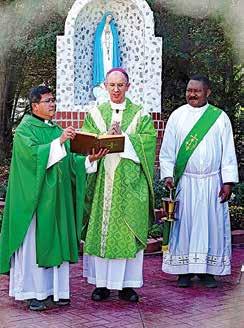
PHOTO PROVIDED
1975 he could have left, but he did not want to leave my family,” Father Dinh said. “He knew if he stayed, he could be tortured to death, but he chose to stay, and he was put into prison after Saigon fell.”
One year later, his father died in prison at age 50.
That would devastate some people, but Father Dinh said his family’s experience has helped him find greater joy in serving God.
“For me to celebrate my silver jubilee is not an accomplishment – it’s an act of gratitude to God for all the blessings I have received from the Lord,” he said.
Father Dinh had been in the minor seminary for several years when the Communist regime in Vietnam shut it down, along with many other houses of worship and religious institutions. He was forced to leave and head home to his remaining family but had a major problem: he had no official identification or other documents.
“Without documents at that time, the Communist police could arrest me and put me in prison anytime, so there was only one solution for me to survive and continue to pursue my vocation,” he said. “That was to escape from Vietnam by boat.”
priesthood in the Diocese of Charlotte because friends had recommended the area. Then Bishop William Curlin accepted his application, and he completed his formation at St. Mary’s Seminary in Baltimore.
Because his father had died at the hands of the Vietnamese government, Father Dinh was able to bring the rest of his family to the United States in 1993. Most of them settled in Charlotte, while some relatives now live in Raleigh, South Carolina and Iowa.
His work as a diocesan priest has taken him to all three regions of the diocese – the Triad, Charlotte and the mountains.
After ordination, he first served as parochial vicar at Sacred Heart Parish in Salisbury and then St. Lawrence Basilica in Asheville. He later moved to Charlotte to serve at Holy Trinity Middle School and parochial vicar at St. Ann Parish before receiving his first assignment as pastor at St. Francis of Assisi Parish in Jefferson.
He also served as pastor at St. Joseph of the Hills Parish in Eden before becoming pastor in High Point in 2017. There he remains busy serving a diverse parish –offering Masses in Vietnamese, Spanish and English every Sunday.
Father Dinh was one of three of nine children who pursued a vocation. One of his sisters was a nun and a brother had entered a monastery before both were forced to abandon their vocations when the Communist government in Vietnam closed convents and monasteries.
The Vietnam War caused a great loss for Father Dinh and his family. He tells the story quietly.
“My father was a high officer who had worked for the Americans during the Vietnam War, and after the Fall of Saigon in
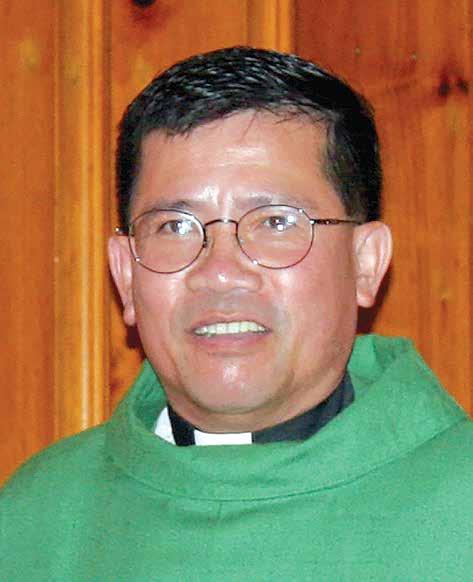
Christ the King Parish in High Point welcomed Bishop Peter Jugis, who offered Mass with Father Joseph Dinh, pastor, (pictured at left) as concelebrant in the newly renovated church to mark its 80th anniversary in 2021. Father Dinh is known as “the smiling priest” for his joyful attitude. Congratulations to a smiling priest!
He took that fateful boat trip in 1987 and made it to a refugee camp in Thailand, where his application to come to the United States eventually was accepted. After six months studying English in the Philippines, he spent a year working to help his family back in Vietnam and then entered seminary at Divine Word Seminary in Iowa.
After earning a bachelor’s degree in philosophy, he applied to study for the
Father Dinh said he takes the motto for his priesthood from Luke 17:10, which focuses on the attitude of a servant.
“I can see that my priesthood is a vehicle, a way to serve God and to serve others with humility, joy and commitment,” he said. “I did face challenges and difficulties on the way, but I believe God gave me the courage and joy to come through, and I remain open to the joy of the Lord.”
SACERDOTAL SILVER JUBILEE
BLESSINGS ON YOUR ANNIVERSARY FR. JOSEPH DINH Fr. Joe Dinh,
Honoring your 25 years of joyful service to God and His people
Christ the King Catholic Church High Point, NC 25 years of joyful commitment to the vineyard of the Lord
CHÚC MỪNG NGÂN KHÁNH LINH MỤC Cha Giuse Đinh Xuân Long
Vietnamese Community in High Point, NC The Dinh’s Family
CHRISTINA LEE KNAUSS clknauss@rcdoc.org
BREVARD — Father Shawn O’Neal has many wonderful memories as he looks back on 25 years of priesthood in the Diocese of Charlotte, yet what he treasures the most are the relationships he has built with people in the parishes he served.

He was ordained June 3, 2000, at St. Matthew Church in Charlotte by Bishop William Curlin. He served as parochial vicar at Sacred Heart Parish in Salisbury, then pastor at St. Joseph Parish in Bryson City, before becoming pastor at Sacred Heart Parish in Brevard in 2014.
While traveling in Belgium and Germany on an anniversary pilgrimage that included several days at the shrine of St. Juliana of Liege, he called in to offer some perspectives on his silver jubilee:
When did you first think you might want to become a priest?
My vocation really came into my mind during my college years as I was graduating from Appalachian State University and then later went to UNC-Charlotte to work on a master’s in education. I’m very grateful to Campus Ministry at both of those places, because it gave me a place to be able to discern, and I was encouraged to give it some serious thought. Both the campus ministers and my peers in college took seriously the idea of having a vocation in life and following the call of God. And they were real blessings because they helped me approach the idea of vocation with a degree of maturity, and not be afraid to follow God’s call when it came.
What is one of the biggest lessons you have learned in 25 years as a priest?
I have learned to put my relationship with God and my relationship with folks in the church side by side, and to call the people I serve friends. That helps to avoid the distance of treating everybody like clients. Priests need to be available because folks sometimes need help, and I want to be available in that way, to walk side by side with them. I think about my friends who are parents, and I know they are not going to say no to their kids when they need something, and I’m not going to say no to the flock.
Serving a parish in the mountains, what was the aftermath of Tropical Storm Helene like for you?
I’m glad I could assist with sacramental needs at the same time that many others were generous with the skills that they had. I was able to cooperate in providing care for folks in body, in mind and in spirit, and I’m grateful I could help with that.
Is there one specific event in your priesthood that stands out in your mind?
There’s no specific event. What stands out are the relationships I have been able to build and keep with people I have served. For instance, there are people who I first met when I gave them their first Holy Communion, and I’ve kept in touch with them over the years and still stay in touch with them now that they are adults. That is very special.
Do you have advice for men who may be considering a vocation to the priesthood?
Don’t be afraid to talk about it. Don’t be afraid to listen to the calling. Just make sure to develop good relationships with both your peers and with older people who can help you with those kinds of questions. I say that because discernment can be a real struggle, and everything doesn’t become instantly clear. So it helps to take the long walk with the help of others.
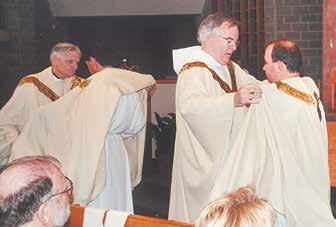
I remember the help I got from those campus ministers as well as the diocesan vocation director and my pastor, Father Frank O’Rourke.
Do you have a favorite saint, devotion or prayer?
It’s very difficult to pick one favorite saint… I was taught about so many while I was growing up, and learned about more of them from Benedictines I knew during formation and men and women I’ve met from other religious orders. I’ve really gained a broad appreciation for all the different saints we have in the Church. One devotion that stands out for me is the devotion to Our Lady of Good Counsel, which I was introduced to through the Augustinian tradition. on their ordination to the Sacred Order of the Diaconate.
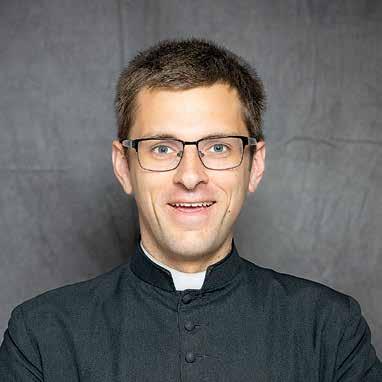

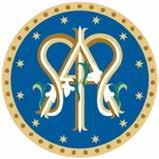
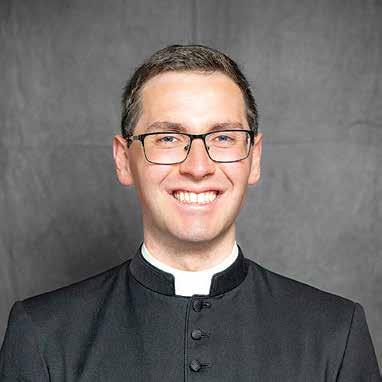
LISA M. GERACI lmgeraci@rcdoc.org
HIGH POINT — Father Baiju Paul Puthussery is celebrating his 25th anniversary as an Oblate of St. Francis de Sales priest. After years spent as a school administrator, he is now living out his priestly ministry as parochial vicar of Immaculate Heart of Mary Parish.
Father Baiju, as he likes to be called, has had some short stints as a diocesan priest, but for the most part, his ministry has been dedicated to education – first as a teacher, then as a principal. Shifting to parish life has been rewarding.
“I did more anointing in the last two years than ever. I didn’t get the opportunity while I was a principal, so I’m happy to do that now,” said Father Baiju, who has been at Immaculate Heart of Mary since 2022.
“It’s nice being on the campus at the school. That brings me total happiness because of my background. It brings me a lot of joy celebrating Mass and seeing all the student activities.”
When he was not teaching, he was learning – earning four master’s degrees from all over the globe in education, sociology, educational management and psychology. Plus, he speaks four languages: English, Malayalam, Spanish and Hindi.

Father Baiju was born in Kerala, India, and baptized as a Syro-Malabar Catholic. India is the most populated country on the globe, with nearly 1.5 billion people, yet only 1.6% or 23 million are Catholic. The tropical state of Kerala, a little larger than Maryland, contains the most Indian Catholics, around 4 million. These Catholics are Syro-Malabar, one of the 23 Eastern Catholic churches. While in communion with the pope, they follow the East Syriac liturgical tradition, which blends
Indian customs with Catholic heritage.
The Sisters of Charity of St. Vincent de Paul, who have been active in education and healthcare in High Point since 2000, are also from Kerala. They quickly discovered Father Baiju’s origins and informed St. Mary’s SyroMalabar Catholic Church in Charlotte.
“The pastor from St. Mary came and visited me and asked, ‘Will you be available when there is a need for confessions or Masses when I’m away?’ I said, ‘Yes, definitely.’ It helps me to stay in touch with the Mass, and then when I go home it’ll be easier because I’m still in touch with my language,” he said.
So, sometimes, Father Baiju, one of the few priests in the diocese able to celebrate in both rites, will dress in his elegant gold SyroMalabar vestments and preside over a Mass at St. Mary’s.
Father Baiju attended Catholic schools all his life, along with his two brothers and four sisters. He felt called to a priestly vocation after watching his uncle, who is a retired diocesan priest, and the other clergy at his school. Although he had never left his home state, he knew he wanted to travel abroad and started exploring avenues within the wider Roman Catholic Church.
“A priest contacted me who was my uncle’s friend. He was looking for candidates for the Oblates of St. Francis de Sales, so I met him, even though I wasn’t sure what all
Congratulations and heart-felt prayers for on the occasion of his Transitional Diaconate Ordination.
DEACON
John Cuppett
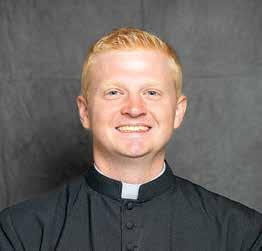
Your Saint Leo the Great Catholic Church Family
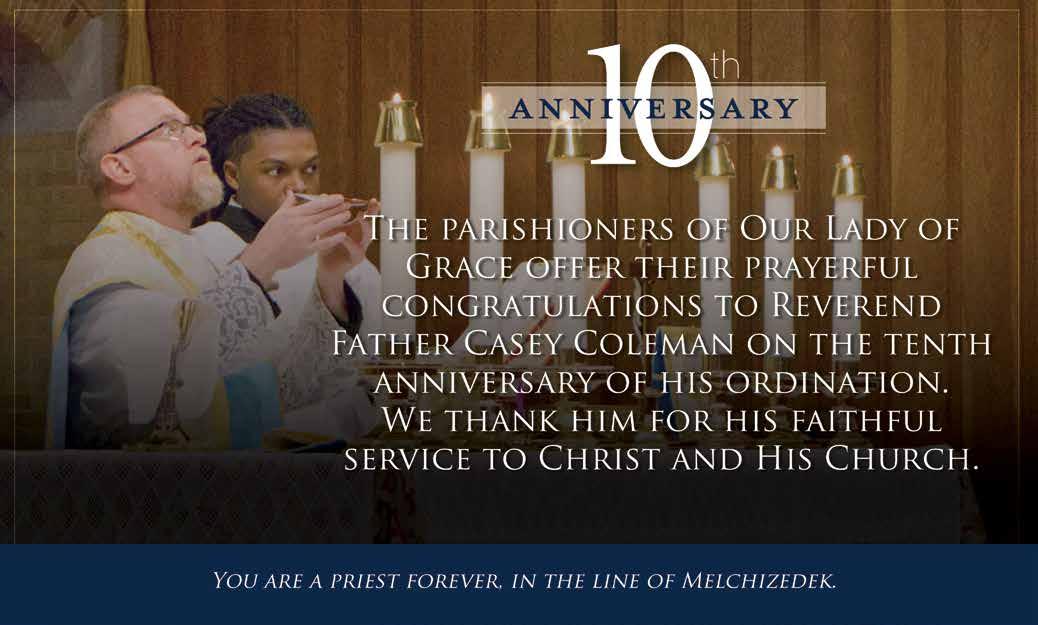
CHARLOTTE — The Daughters of the Virgin Mother recently marked 10 years of presence in the Diocese of Charlotte.
On May 13, 2015, with the approval of then Bishop Peter Jugis, Sister Mary Raphael started an apostolate in the diocese that aimed to serve the priesthood just as Mary served Jesus.
“Through our baptism and a life of grace, we seek to know what Our Lady knew as daughter of God, the Father,” she said.
Formed in 2015, the Daughters of the Virgin Mother tend to practical and spiritual needs of men preparing for the priesthood, as well as those already ordained. In 2023 it was recognized as a Private Association of the Christian Faithful, one step in the Church’s process of becoming a fully recognized religious community.
Members primarily serve at St. Joseph College Seminary but also work in parishes.
“I suppose these last 10 years could reflect the Annunciation and the life that was given to be nurtured and to bear fruit,” Sister Mary Raphael wrote on their anniversary. “Thank you to eight brave women who came. On my tough days, you are my inspiration, because now you lead me, too. I see your example. I see your generosity, and it calls me higher up and further in. Thank you to the priests of our diocese who have been our fathers, who believed in this endeavor and who have helped form and spiritually guide us. It’s one thing to support a community of 10 years. It’s a very different thing to believe in them from year one.
“My prayer is that in this next decade, we’re going to live out the Mystery of the Visitation. Look at the beautiful things the Lord is doing in His sacred grace.”
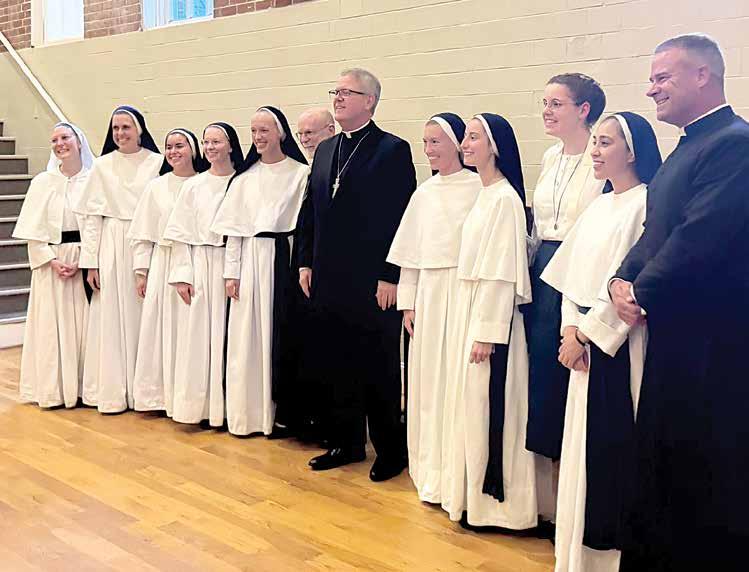
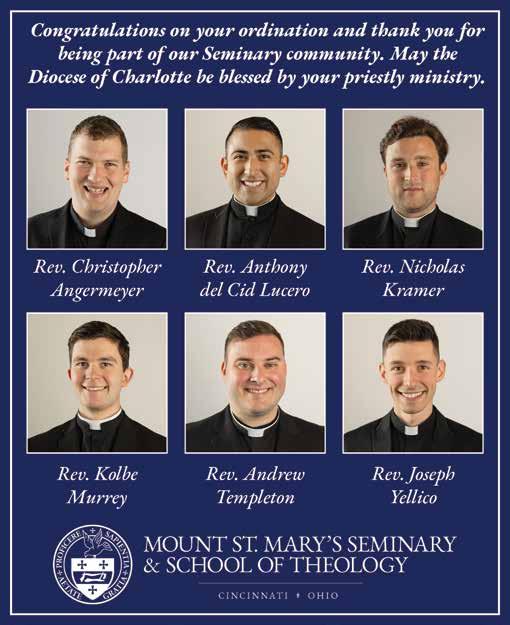

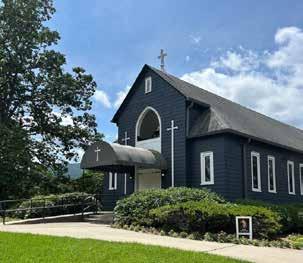
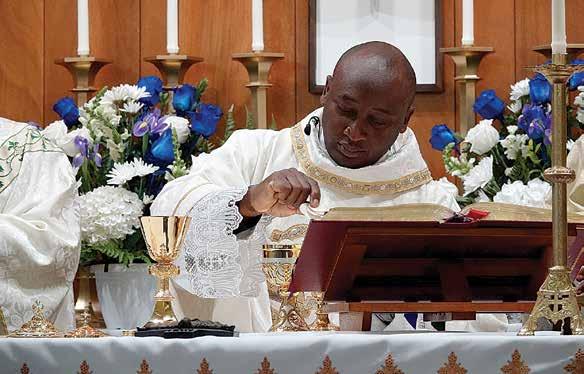
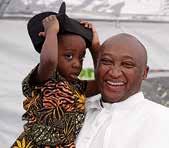
Celebrating a decade in the priesthood: ‘God is good’
WINSTON-SALEM — Father Melchesideck Yumo marked his 10th anniversary of ordination April 27 with a celebration at St. Benedict the Moor Church. After Mass, people from his parish, friends from his former parish of St. Mark in Huntersville, and friends and clergy from his native Cameroon gathered to celebrate Father Yumo’s anniversary and also his birthday. As he said in his homily… and was written on the cake in Spanish: “God is good all the time; all the time, God is good.”
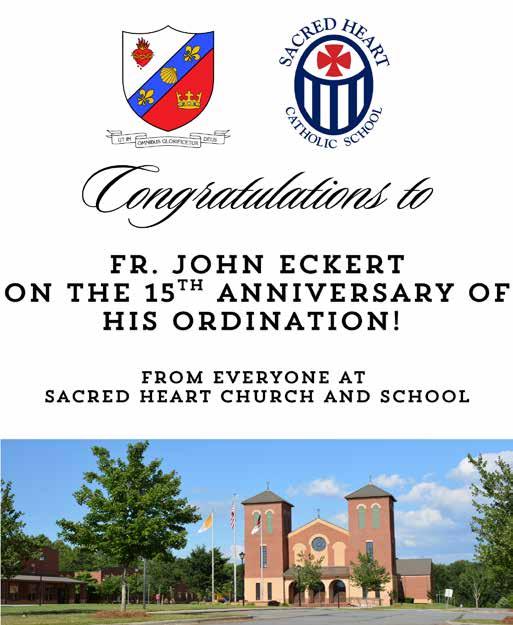
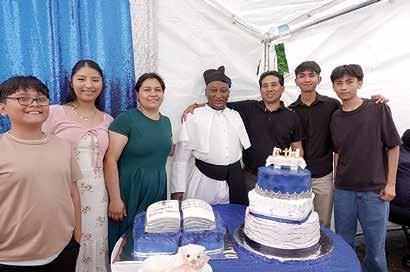
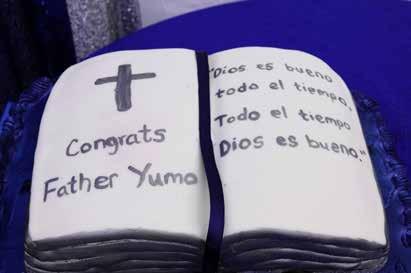
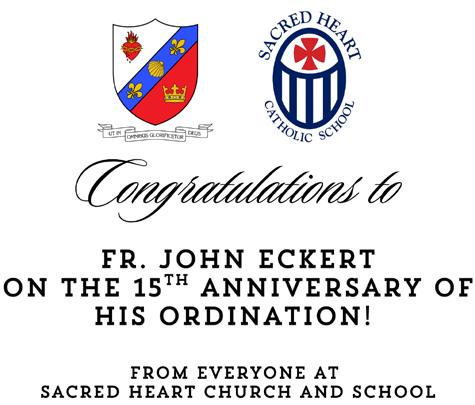
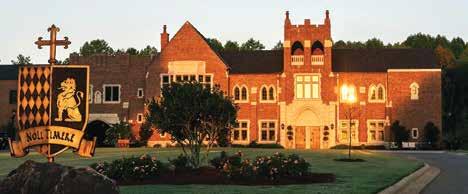
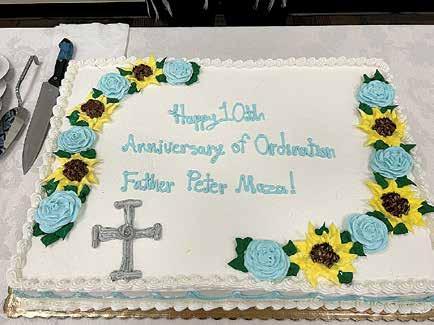
PHOTOS PROVIDED
CLEMMONS — Father Tyozenda Peter Maza celebrated his 10th anniversary of priesthood at Holy Family Parish, where he is the parochial vicar. He was ordained on April 9, 2015, in the Diocese of Buea, Cameroon. He served as campus minister at High Point University in 2023 before being appointed to Holy Family Parish in 2024.
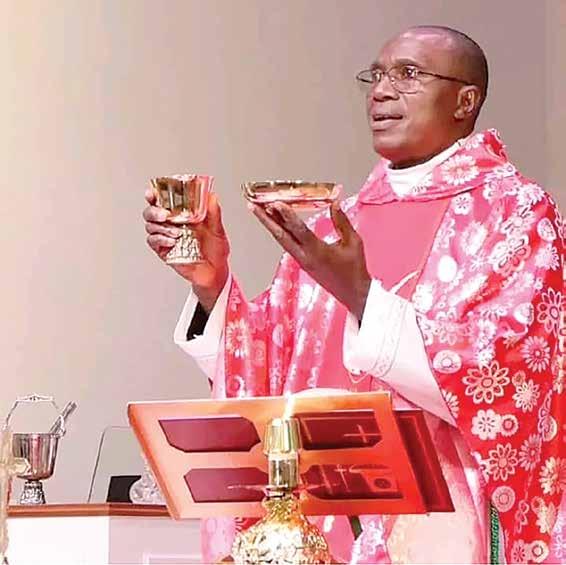
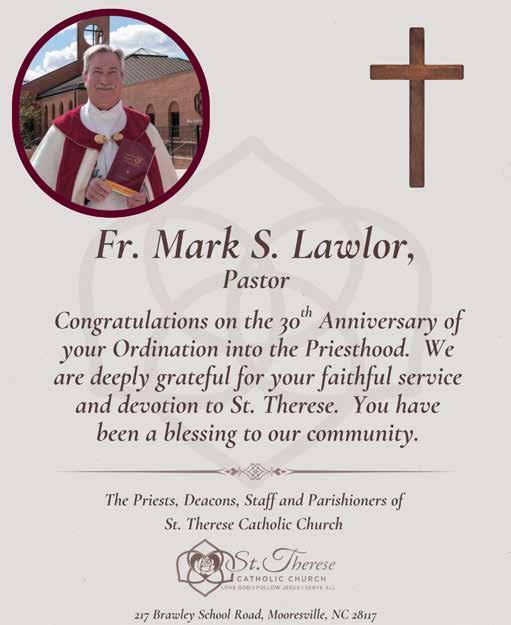
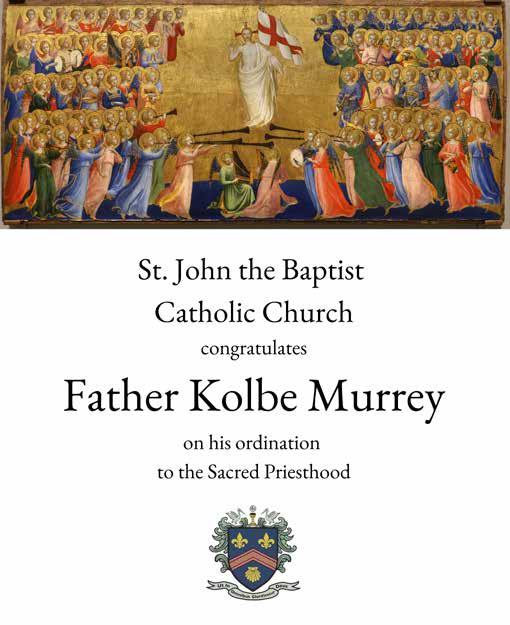
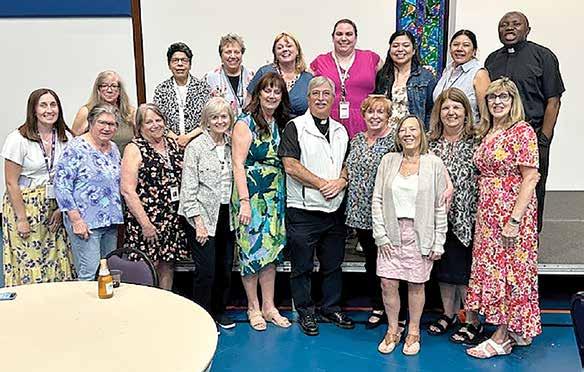
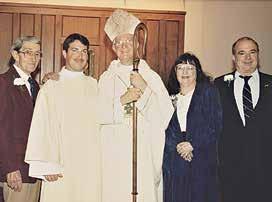
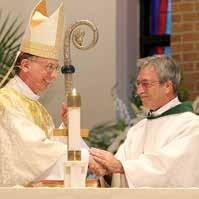
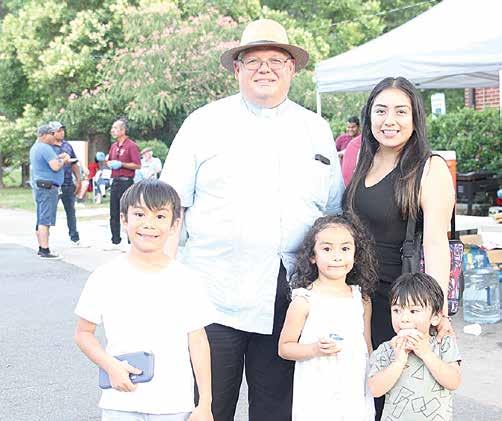

MOORESVILLE — Father Mark Lawlor didn’t plan his anniversary party, but he did have the speech already written and ready to go in his back pocket. That’s because he had been waiting for this opportunity for the past five years. He was ordained on June 3, 1995, but like so many of his brother priests in the diocese, he couldn’t celebrate his milestone 25th anniversary with his parish family because of the pandemic. With his usual optimism, that made the get-together for the 30th anniversary of his priesthood twice the fun. Father Lawlor loves potlucks and enjoyed one with 200 of his closest friends from St. Therese. This is his eighth year serving as pastor, and he has been enjoying every bit of his ministry, loving Mooresville and his parish family.
PHOTOS PROVIDED
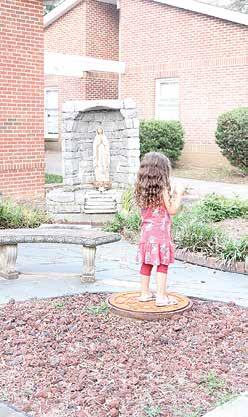
MONROE — While people tend to focus on the landmark anniversaries, parishioners across the diocese often take the time to mark the smaller but no less important milestones of the clergy who inspire and lead them. At Our Lady of Lourdes Parish in Monroe, parishioners held a “Sweet 16” picnic-style party for their pastor, Father Benjamin Roberts. On June 6, parishioners brought blankets and lawn chairs and enjoyed hamburgers and hot dogs to honor the happy occasion.
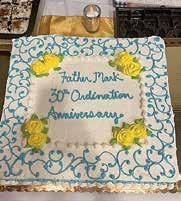
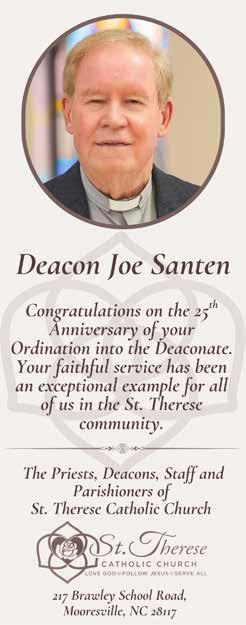

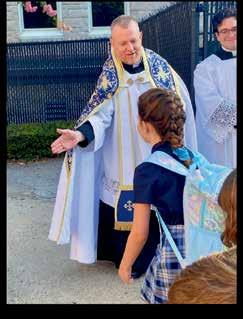


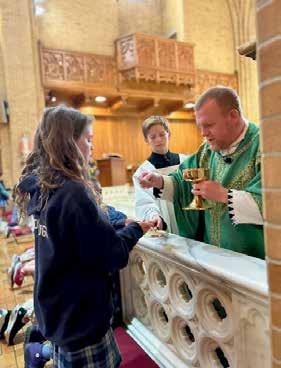
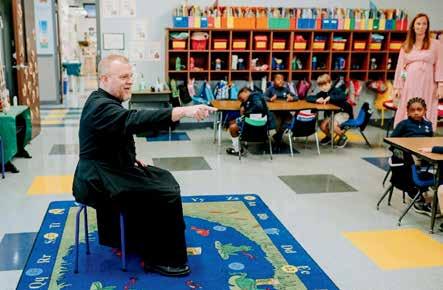
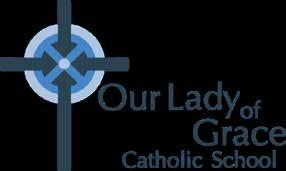










Please pray for the repose of the souls of these clergy and religious who have died since June 2024:
n Deacon Carl Warner Hubbell Sr. passed away April 9, 2025, aged 91. Ordained in 1991, he led a life characterized by service, devotion and love, contributing significantly to his community and the two churches where he served for decades: St. William in Murphy and Immaculate Heart of Mary Mission in Hayesville.
n Father John J. (Jack) Kelly, OSFS, 80, passed away Dec. 3, 2024. He was professed with the Oblates of St. Francis de Sales for 61 years and a priest for 53 years. The former pastor of Immaculate Heart of Mary Parish in High Point encouraged people to embrace Salesian spirituality and “Live Jesus!”
n Monsignor Anthony J. Marcaccio, 61, passed away July 19, 2024, following complications from a rare cancer. He served in priestly ministry for 33 years, with more than two decades of that time as the beloved pastor of St. Pius X Parish in Greensboro, where he led church renovations and fostered a strong parish community. He was known for his leadership, sense of humor, and dedication to stewardship.
n Mercy Sister Jeanne Margaret McNally, a widely respected educator, psychologist, nurse and canon lawyer, passed away July 6, 2024. A Sister of Mercy for 75 years, she served in numerous ministries, including teaching at Belmont Abbey College and providing psychological services and spiritual direction.
n Mercy Sister Bernadette McNamara, a Sister of Mercy for 73 years, passed away Dec.
16, 2024. She served in various roles, including educator, pastoral minister and administrator. She was the CEO and president of Catherine’s House, a transitional home for women and children experiencing homelessness.
n Mercy Sister Ray Maria McNamara, 76, passed away Dec. 22, 2024. She was a gifted ministry leader, theologian, hospital administrator, former principal of St. Patrick School in Charlotte, as well as mission advancement and formation leader for the Sisters of Mercy community in Belmont.
n Deacon Robert T. Murphy passed away May 16, 2025, aged 84. Ordained in 2006, he was a dedicated deacon who served St. Mark Parish, particularly Hispanic Ministry as well as general parish and outreach ministries, with unwavering faith and commitment.
n Mercy Sister Mary Andrew Ray, a respected educator, passed away Feb. 8, 2025. Known for her commitment to academic excellence and her deep faith, she touched countless lives teaching at various Catholic schools in North Carolina and serving in leadership roles with the Sisters of Mercy.
n Monsignor Joseph Showfety, a founding father of the Diocese of Charlotte, passed away March 24, 2025, in High Point. He was 98.
n Mercy Sister Mary Robert Williams passed away Dec. 26, 2024, at the age of 92. A beloved Sister, educator, pastoral minister and spiritual leader, she dedicated her life to serving others, embodying compassion and kindness throughout seven decades of ministry.

— Catholic News Herald
Congratulations to our beloved seminarians on your recent diaconal and priestly ordinations! We are overjoyed to have played an integral role in your formation as Charlotte’s deacons and priests.
We celebrate with you and look forward to experiencing His strength, wisdom, and inspiration in your faithful and pastoral care.
MAY GOD BLESS YOU AND YOUR MINISTRY TO THE CHARLOTTE DIOCESE!
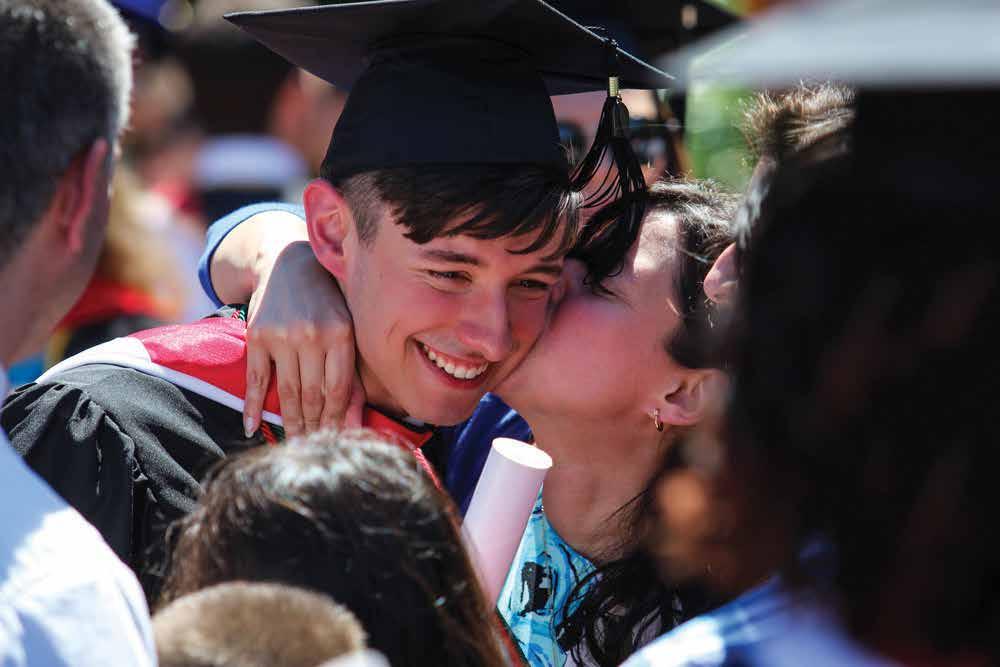
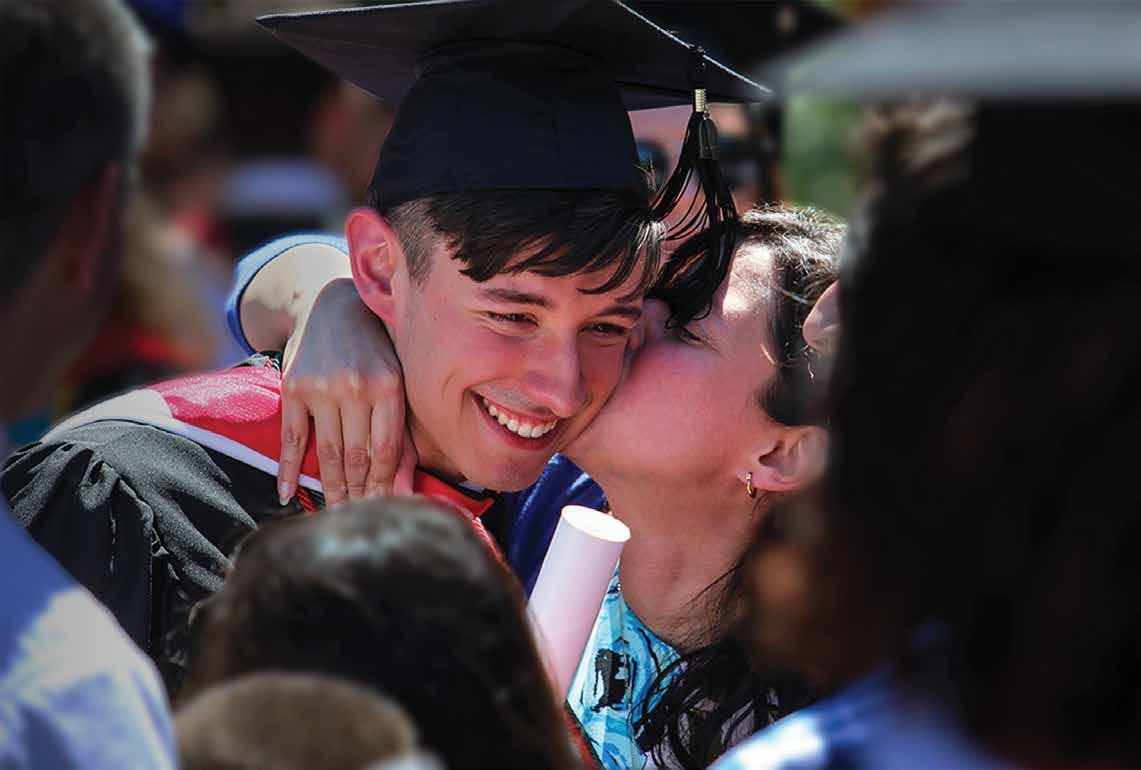
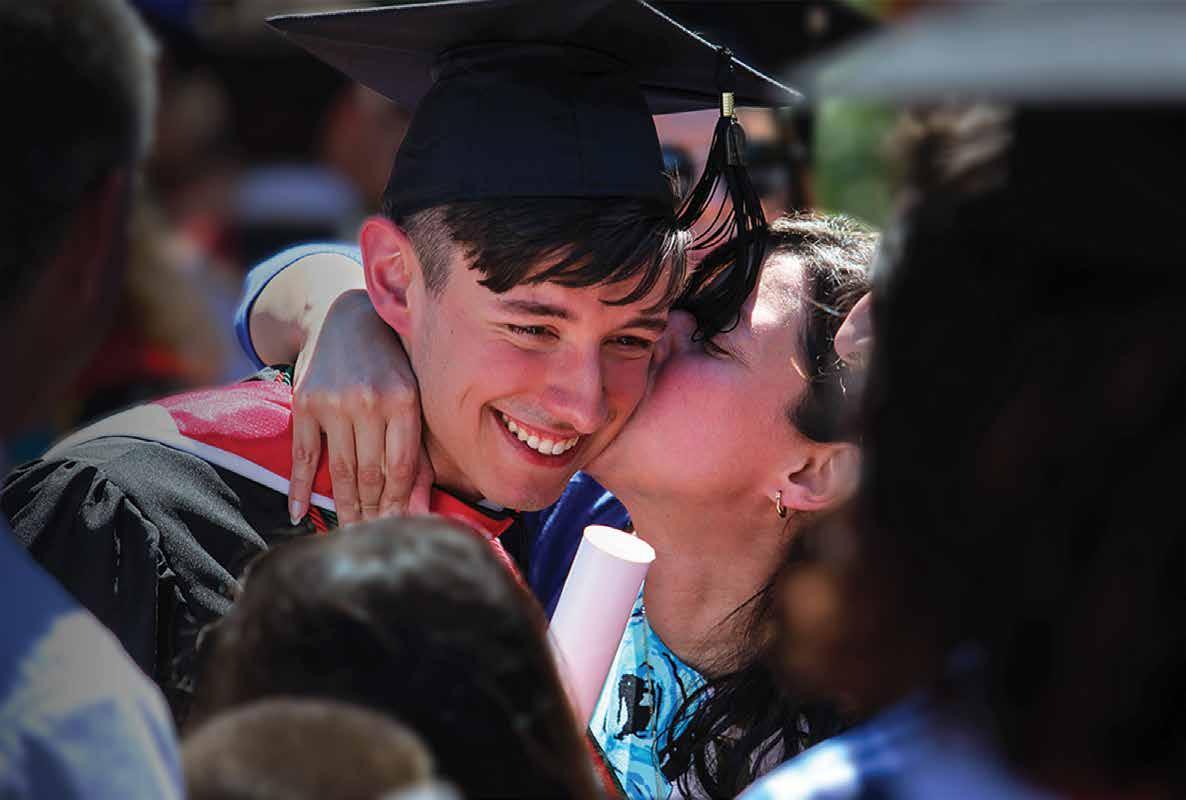
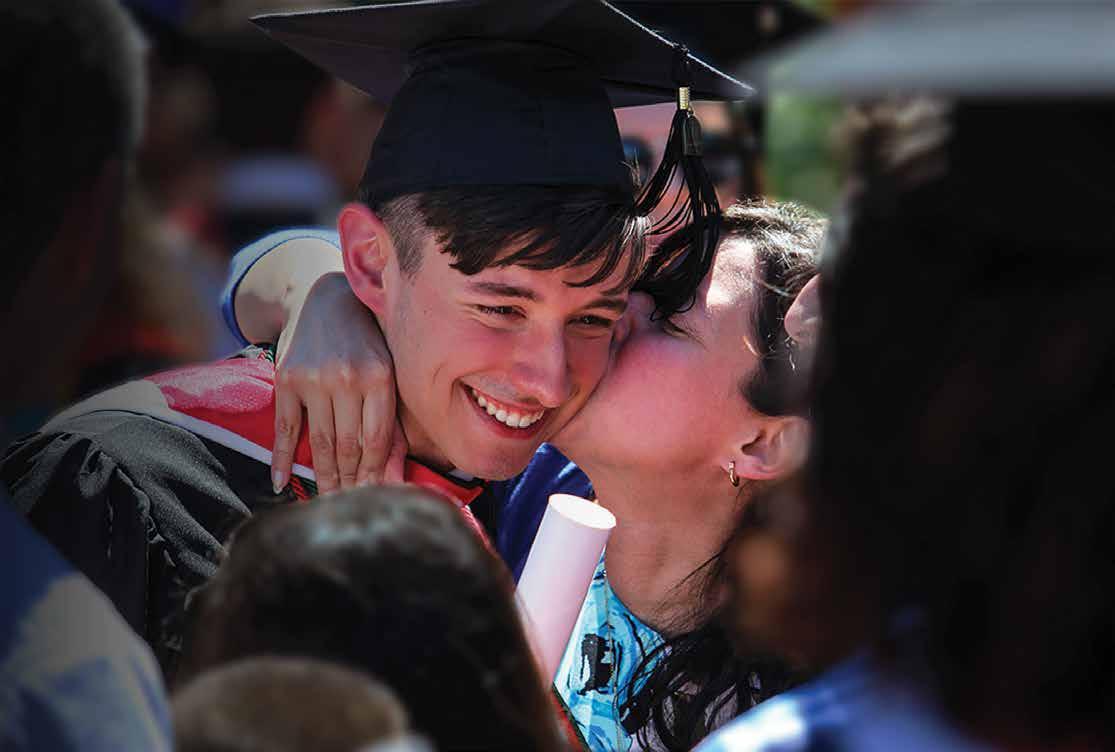
Our seminarians’ education is possible thanks to the generosity of parishioners who give to the annual Diocesan Support Appeal, through Seminarian Education second collections in November and on Easter Sunday, distributions from seminarian endowments held in the diocesan foundation, and those who contribute gifts to the Seminarian Education Campaign.
The Foundation of the Roman Catholic Diocese of Charlotte also has 34 endowments designated for seminarian education, totaling over $25 million:
n Monsignor Thomas Burke Seminarian Endowment Fund
n Beatrice A. Chase Endowment Fund
n Teresa Loh Jui Choon and Alexander Sim Seminarian Education Endowment Fund
n Conklin Endowment Fund
n Loraine Cox and C. Richard Cox Seminarian Education Endowment Fund
n Doris and Walter Dietrich Endowment Fund
n Di Pietro Family Endowment Fund
n Mr. A. Steven and Dr. Donna S. Ellington Endowment Fund
n Fabrey Endowment Fund
n FFHL Vocation and Seminarian Support Endowment Fund
n James and Elizabeth Hedgecock Seminarian Endowment Fund
n Dick Kelly Endowment Fund
n Knights of Columbus Council #770 Seminarian Support Endowment Fund
n Seminarian Michael G. Kitson Memorial Endowment Fund
n Lee Endowment Fund
n Don and Teresa Meanor Endowment Fund
n John and Marianne Polickoski Endowment Fund
n Priests Support Endowment Fund
n William E. Rabil, Sr. and Rosalie Daye Rabil Family Endowment Fund
n Reverend Timothy S. Reid Endowment Fund
n Eugene and Carmen Rossitch Endowment Fund
n Edward C. and Joan F. Ruff Seminarian Endowment Fund
n Matthew Scheible Endowment Fund
n Dr. Marvin L. Schrum and Paula B. Schrum Education Endowment Fund
n Seminarian Assistance Endowment Fund
n Seminarian Education Endowment Fund
n Abdou J. and Edna S. Showfety Seminarian Education Endowment Fund
n Stephen D. Showfety Endowment Fund
n Judith and Michael Simac Endowment Fund
n St. Lawrence Council (1695) RSVP Endowment Fund
n St. Lucien Catholic Church Seminarian Scholarship Endowment Fund
n Father Wilbur Thomas Memorial Endowment Fund
n Valentine Family Seminarian Education Endowment Fund
n Vocations Endowment Fund
Each year, people also have the opportunity to celebrate the faithful service of our retired diocesan priests, as well as show gratitude to the priests currently serving in the diocese, by contributing to the diocese’s Priests’ Retirement and Benefits second collection.
— Catholic News
Herald
FOR INFORMATION ABOUT establishing an endowment for seminarian education or priests’ retirement, contact Gina Rhodes at 704-370-3364 or gmrhodes@rcdoc.org.
FROM PAGE 25B
an Oblate was at the time,” Father Baiju said. He joined the OSFS in July 1990. During a year of postulancy, he found the order to be very down-to-earth and humble. St. Francis of de Sales always said, “Be who you are and be it well,” and that was exactly what he aspired to do. He enjoyed the “Live Jesus” motto and the charism dedicated to simplicity, love, patience and joy.
For his novitiate, he traveled on a plane for the first time to Namibia, Africa.
“I was only 19. It was a culture shock. It was the first time I was out of my state and out of my country, my first time flying, and the first time experiencing a different culture. The language, the food, everything was different,” he said.
The remnants of apartheid were still lingering in Namibia. The segregation and huge discrepancy between the very rich and severely impoverished had similarities to the caste system in India.
Afterward, Father Baiju went to Bangalore, India, and was ordained an Oblate priest in 2000. He served as a parochial vicar in Kerala while furthering his education. He then moved to the United States to pursue a master’s in education at DeSales University in Center Valley, Pennsylvania.
“The first year was difficult. It was very
cold compared to the Kerala tropics, and even though I spoke English fluently, the American way of talking took time to get used to,” he said.
Upon his graduation, he became a sixthgrade teacher and then a high school teacher at Salesianum School, an all-boys school in Wilmington, Del. In the summer months while he was in America, he traveled the country, informing Catholic congregations about the mission of the Oblates of St. Francis de Sales.
“I traveled to over 100 different places like Nebraska, Kentucky and California,” said Father Baiju. “It was a different experience everywhere I went. They were not very exciting places, but at the same time I could see the country far and wide – lots of cornfields.”
In 2009, the congregation sent Father Baiju to start De Sales Academy in Bangalore, India, as principal. He opened the school in 2011 with only 38 students. One of his proudest accomplishments was growing the school to 1,400 students by its eighth year.
It was then he received a phone call from his former dean of students and friend, Oblate Father Peter Leonard of IHM, asking him if he wanted to become a pastoral priest here in North Carolina
Father Baiju quickly said yes and, so far, he loves it.
“I’m happy here in North Carolina,” said Father Baiju. “I can deal with a lot of older people, the sick, funerals and weddings. I’m on campus with a school that also brings a lot of joy.”
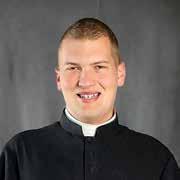
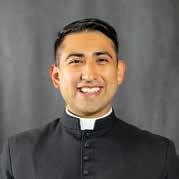
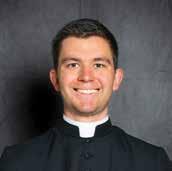
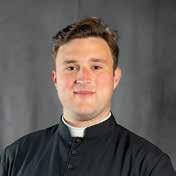
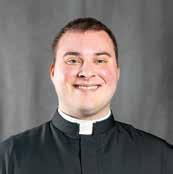
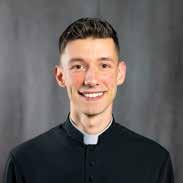
“If some of you hear the call to follow Christ more closely, to dedicate your entire hear t to Him, lik e the Apostles John and Paul...
...because you have nothing to fear when the prize that you await is God Himself, for Whom, sometimes without ever knowing it, all young people are searching.” be generous, do not be afraid, - Saint John Paul II

Of f ice of Vocations Diocese of Charlotte
Father Christopher Gober Director of Vocations (704) 370-3353
1123 South Church Street Charlotte, NC 28203-4003
vocationsmail@rcdoc.org
